IMAGINE EQUALITY, CREATE CHANGE
Coventry Creates 2021 is the second online digital art exhibition
My second project in 2021 I had created another contemporary art dance film, audio using voices of women from ethnic minority backgrounds, photography, poetry and music scored by Matt Eaton
Research was inspired by Dr Khursheed Wadia from University of Warwick, Doing Politics Changing Society
Online art exhibition invite information:
With 12 new projects for 2021, adding to 18 provocative pieces created in 2020’s lockdown, the exhibition aims to change how we perceive and experience our worlds, challenging us to think about issues in society in new ways. The collaborative commissions feature poetry by rapper and writer John Bernard on the impact of museum closures, a short film by Paul Daly exploring experiences of solitude, a dance performance directed by Sherrie Edgar representing the voices of female activists and an animation from Yikki Studio, telling the stories of freelance creatives
The Research: Dr Khursheed Wadia
How do women of colour envision an equal society and how can desired change be created?
Khursheed Wadia’s research on the political participation and civic engagement of women of colour includes working with local stakeholders to support gender and race equality across the West Midlands and Warwickshire.
The research has shown that the voices of racially minoritised women go largely unheard by political decision makers, that their concerns are neglected in public policy. This stems from their under-representation in political and civic life, due to the social and economic disadvantages they face and also due to a lack of political knowledge, skills and time, rather than political apathy. These findings have been used in British and French policy formulation to:
build citizenship and gender equality for women of colour;
to inform the research and reporting practices of civil society organisations and increase their advocacy and lobbying power;
create and run a capacity-building programme (Doing Politics, Changing Society) that increased political knowledge, activist skills and confidence of the participating women.
Working with Sherrie, Khursheed hopes that “Imagine Equality, Create Change will encourage young women of colour to think about their ideal society and how to act politically to bring about desired change. Articulations of change and political action can foster a sense of empowerment and social connection among women, inform local policy makers and also encourage wider publics to think about how to support actions to increase gender and race equality”.
Our collaboration
We asked to be paired up for this project after Khursheed saw Sherrie’s call for a collaborator, placed through the Centre for the Study of Women and Gender (at Warwick). Sherrie wanted to work with a researcher on women, race and activism.
As we didn’t know each other, we felt it was important to build a strong understanding of each other’s work from the start and so once we found out that our application for “Imagine Equality, Create Change” had been successful, we met regularly to bring the project to life. Inevitably it veered from the path we had originally plotted (e.g. due to limited time and resources we were unable to interview the MPs for Coventry South and Coventry North West) and in the end we agreed on having a single artwork as a main statement, around which Sherrie could build satellite pieces if there was enough time.
Drawing on the findings of Khursheed’s research and on the “Doing Politics, Changing Society” capacity-building programme, we decided to talk to women of colour about their conception of politics; their experiences of doing politics (including barriers faced and motivating factors); and whether they felt they had contributed in any way to increased equality and change within and beyond their community. We spoke to 17 women, including two Coventry City Councillors – Councillor Dr Randhir Auluck and Councillor Asha Masih – who shared amazing stories of their respective political journeys.
The testimonies we collected are rich and point to an awareness that politics is not necessarily about what happens at Westminster
It’s about who has what; about why who has what matters and must be shared equitably; about everyday life. They also revealed that while most young women of colour lack formal political knowledge and financial resources, while they face barriers placed by family and community gender norms and expectation and while they have to deal with racism and discrimination within majority white society, many are creative and exploit the smallest resources (social media in particular) to learn from role models and increase political knowledge.
Lastly, we found that many young women are aware that if sufficiently networked at neighbourhood and city level, it is possible to join or build political and civic action online or in real face-to-face situations. The findings from these testimonies link back firmly with those from Khursheed’s research.
The Artwork: Sherrie Edgar
The main art piece emerging from this collaboration directly addresses the themes of Khursheed’s research. It is a digital film of just over 14 minutes in which dance movement, accompanied by a soundtrack is overlaid by the voices and words of each of the women we interviewed.
Dance as a backdrop to the women’s voices was chosen because it has an important place in the history of anti-racist and women’s struggles against sexism and misogyny.
From the Lindy Hop and Jitterbug, danced by African-Americans in 1930s New York, in defiance of racial segregation and white-only dance halls, to the Toyi-Toyi danced by liberation and anti-apartheid activists in southern Africa, to more recent flash mob dances performed by the Black Lives Matters and Billion Women Rising movements, dance has been viewed by those in power as subversive and dangerous; the idea that it promotes sexual freedom and breaks down social barriers threatens established social and political order.
Choreographed movement in public spaces has played an important part in the expression of political ideas and collective demands – not only does it allow those without a voice to be seen and recognised, it also acts as a ‘glue’ between those taking part in movements for change. The viewer, the public is compelled to ask why are these bodies moving? What does their movement mean? So we use dance in this film to say that doing politics, being political takes myriad forms, that:
The freedom to move one’s body is as important as the freedom to speak.
Two other satellite art pieces are included here. One is a free-verse poem (download below) written by Sherrie which takes inspiration from Khursheed’s research and reflects the experiences of the women with whom we spoke. The second is an assemblage of audio-clips from the interviews with women. We felt there had to be another way of conveying the depth of their thoughts and experiences. The film-assemblage which may be accessed via Vimeo is one way of doing this.
We hope viewers of this artwork will actively watch and listen to the women represented in the three pieces, understand their conceptions of an ideal future and ask what part they might have in supporting change.
Dancers
Tunkanmi Akinfe, Lito Alexiou, Shamaeya Ennis-Bailey, Amber Gillies, Jordyn Granil, Sasha Utami
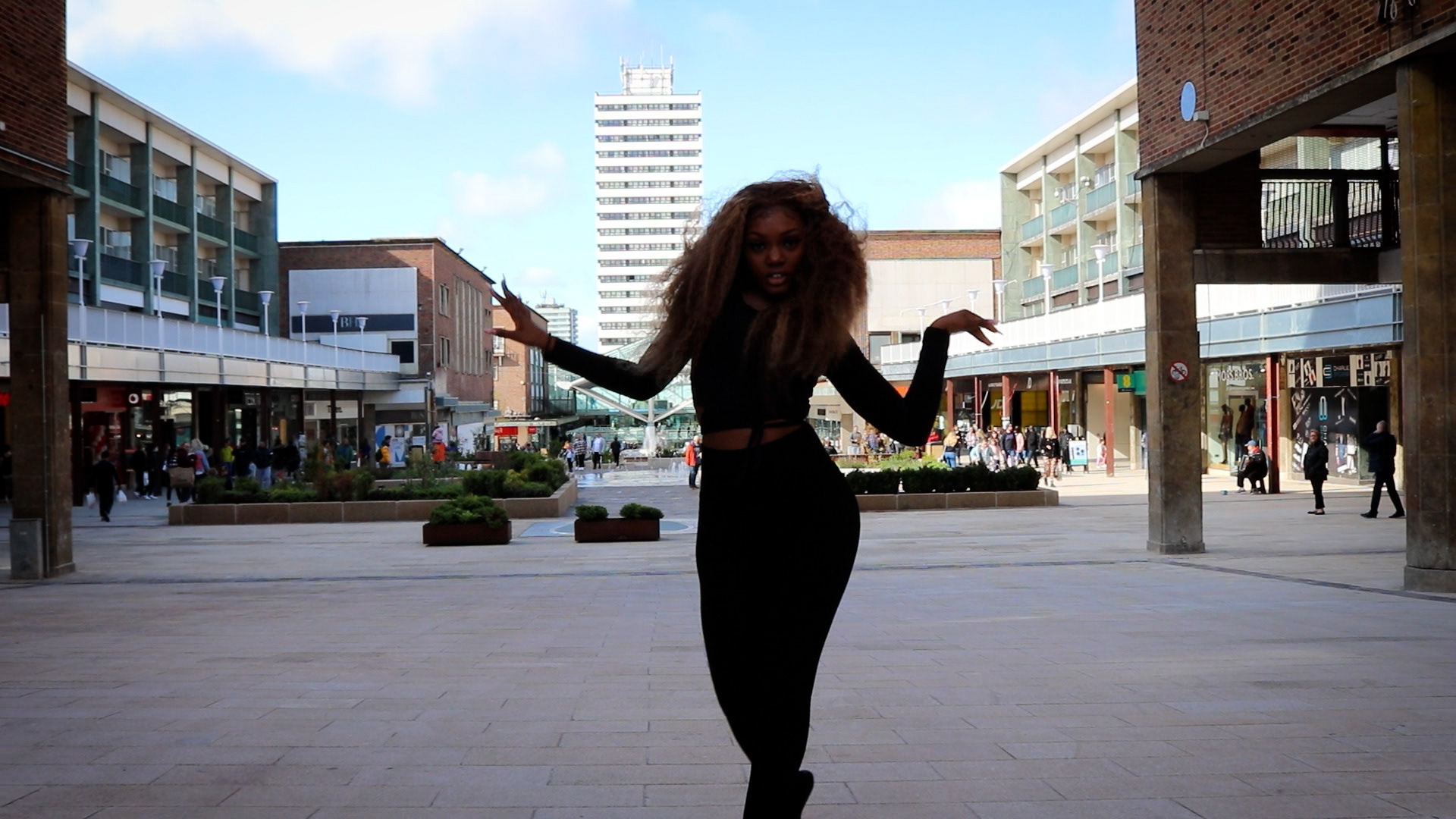
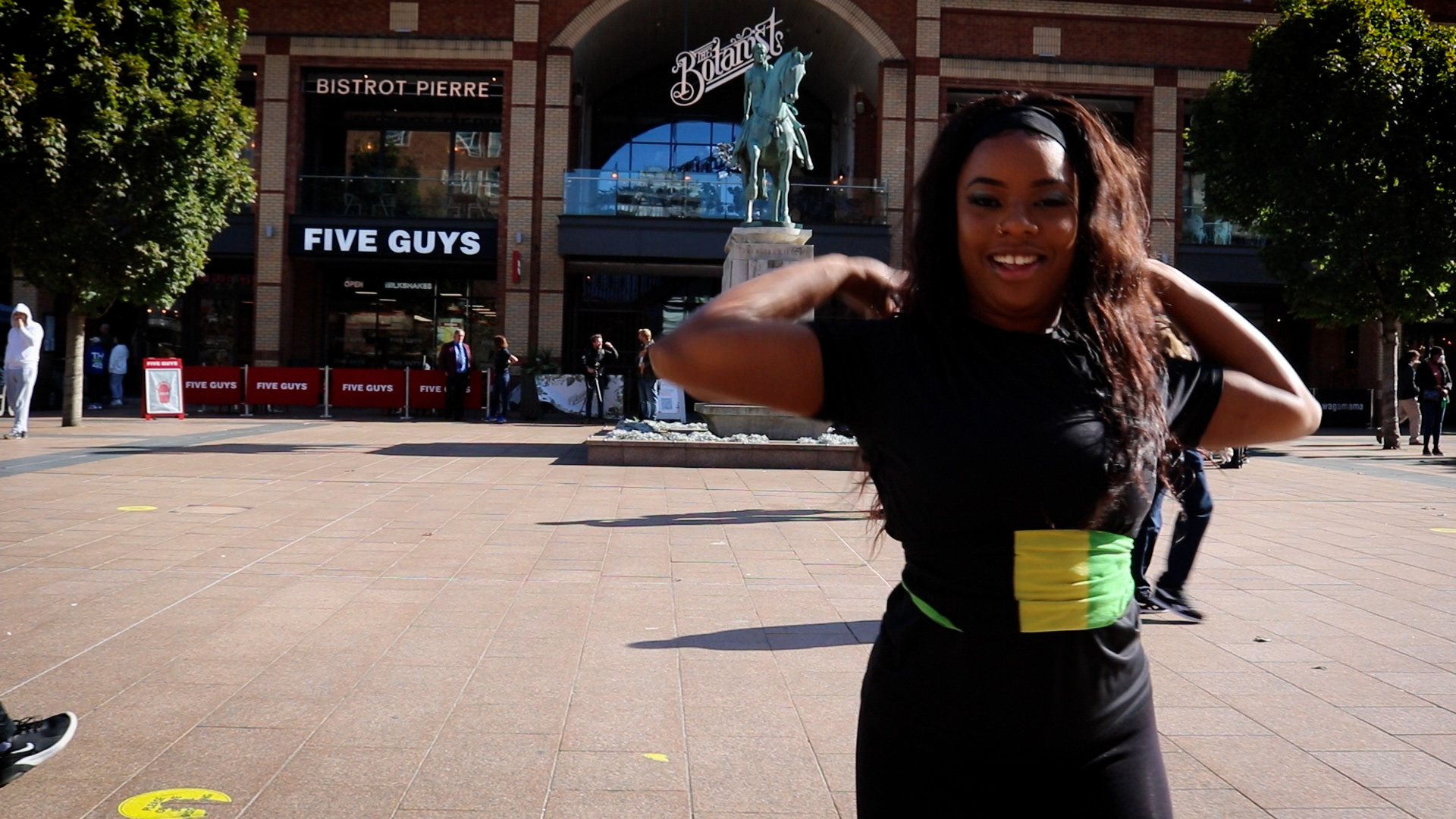
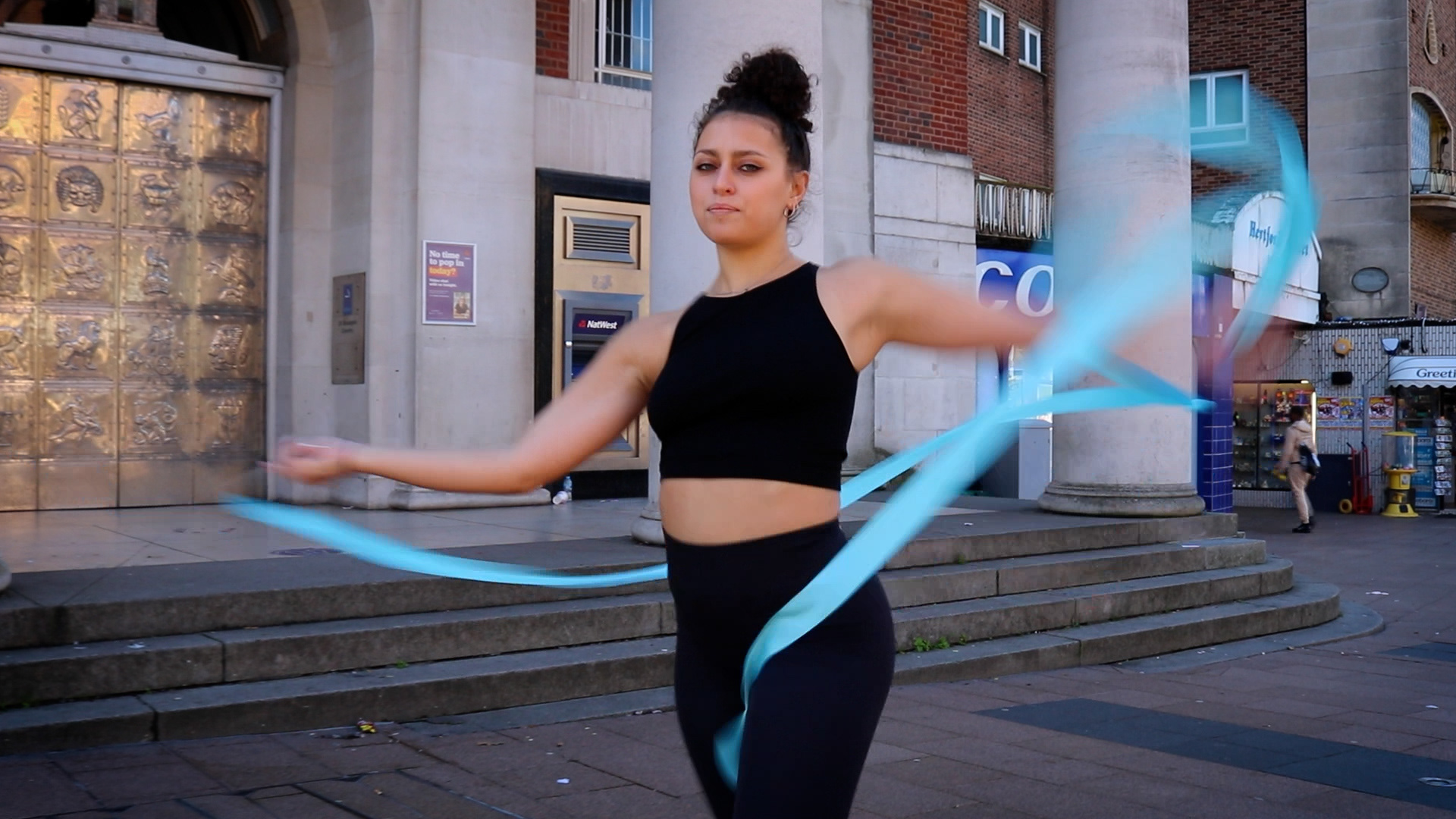
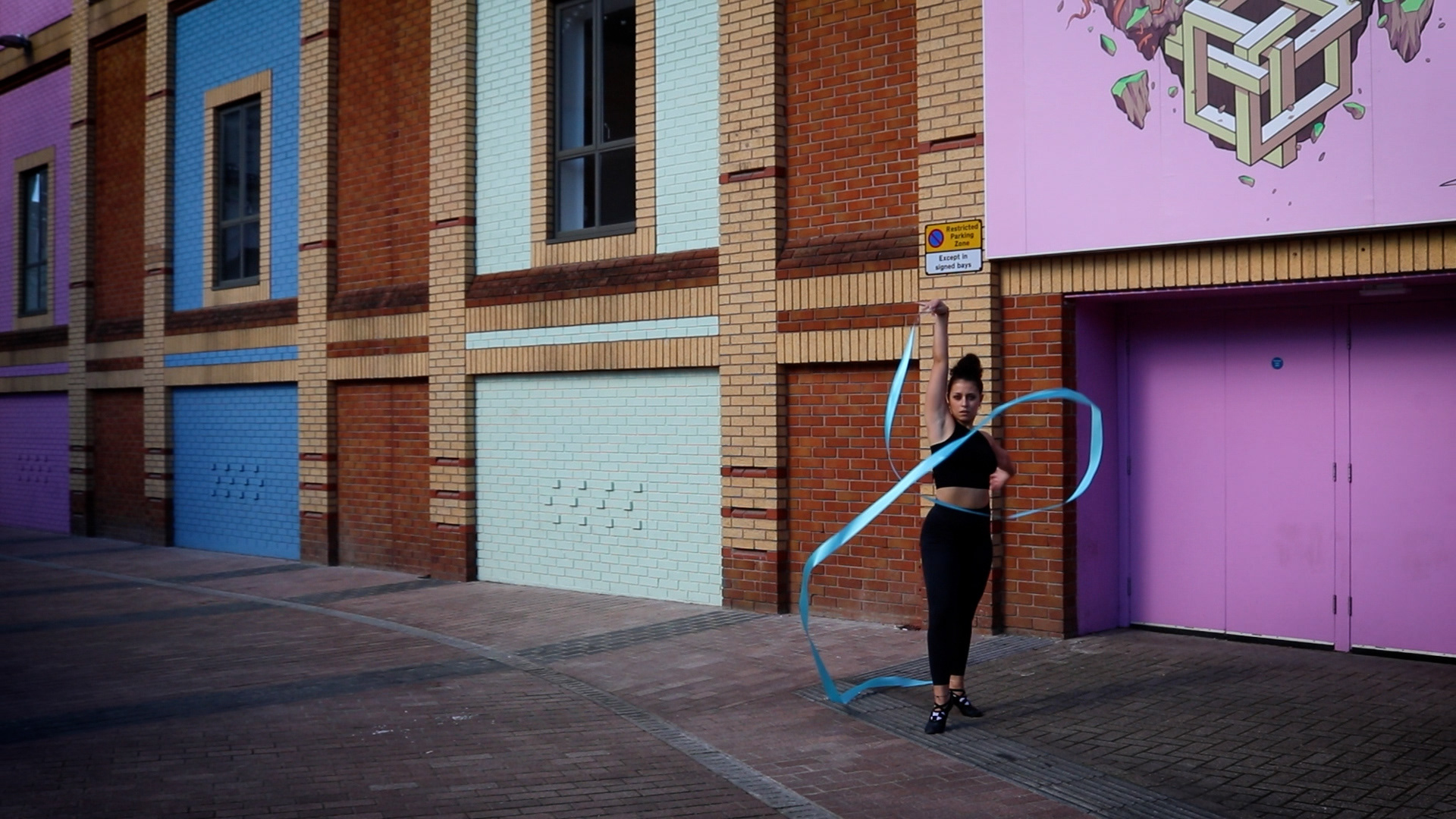
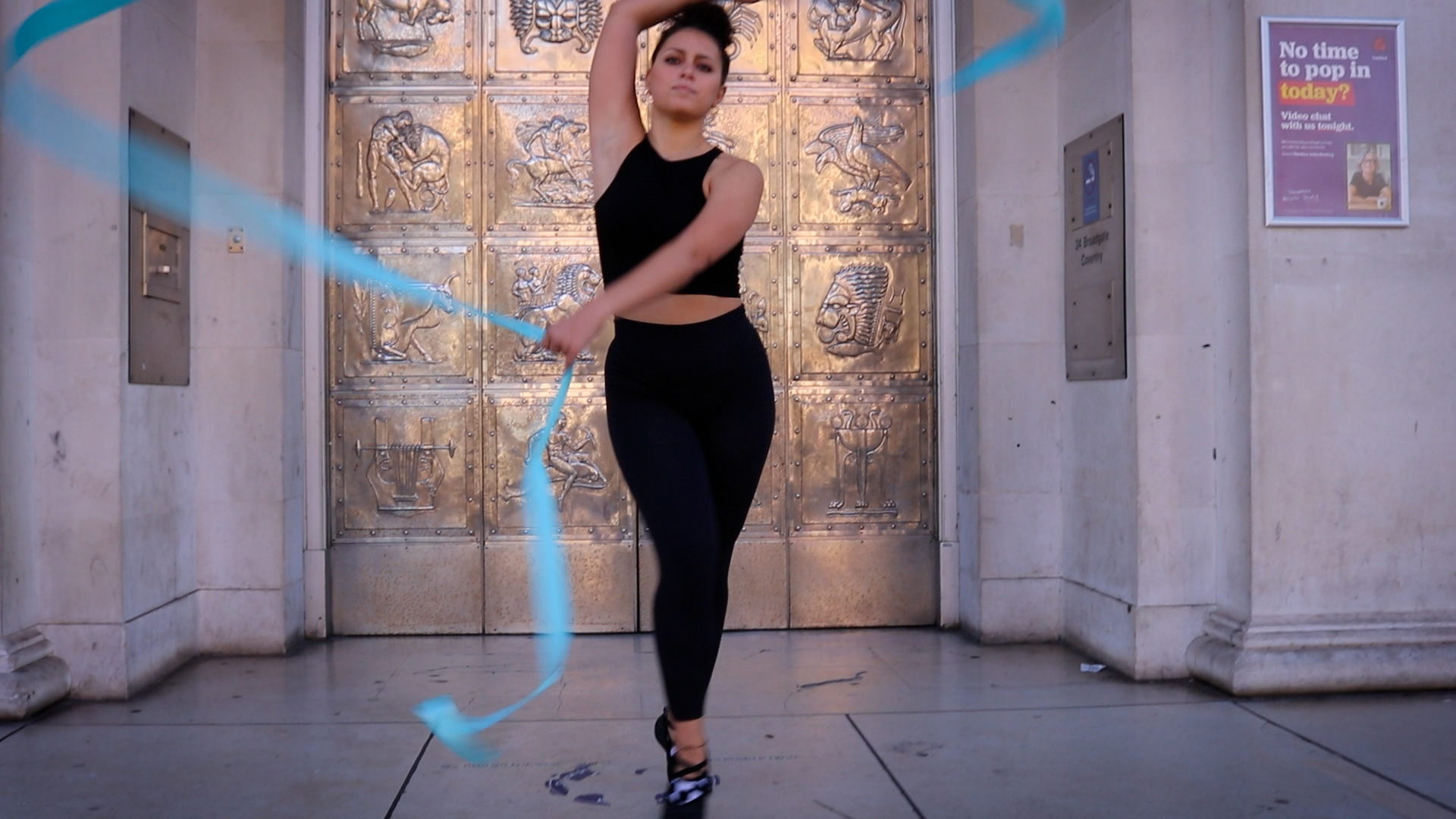
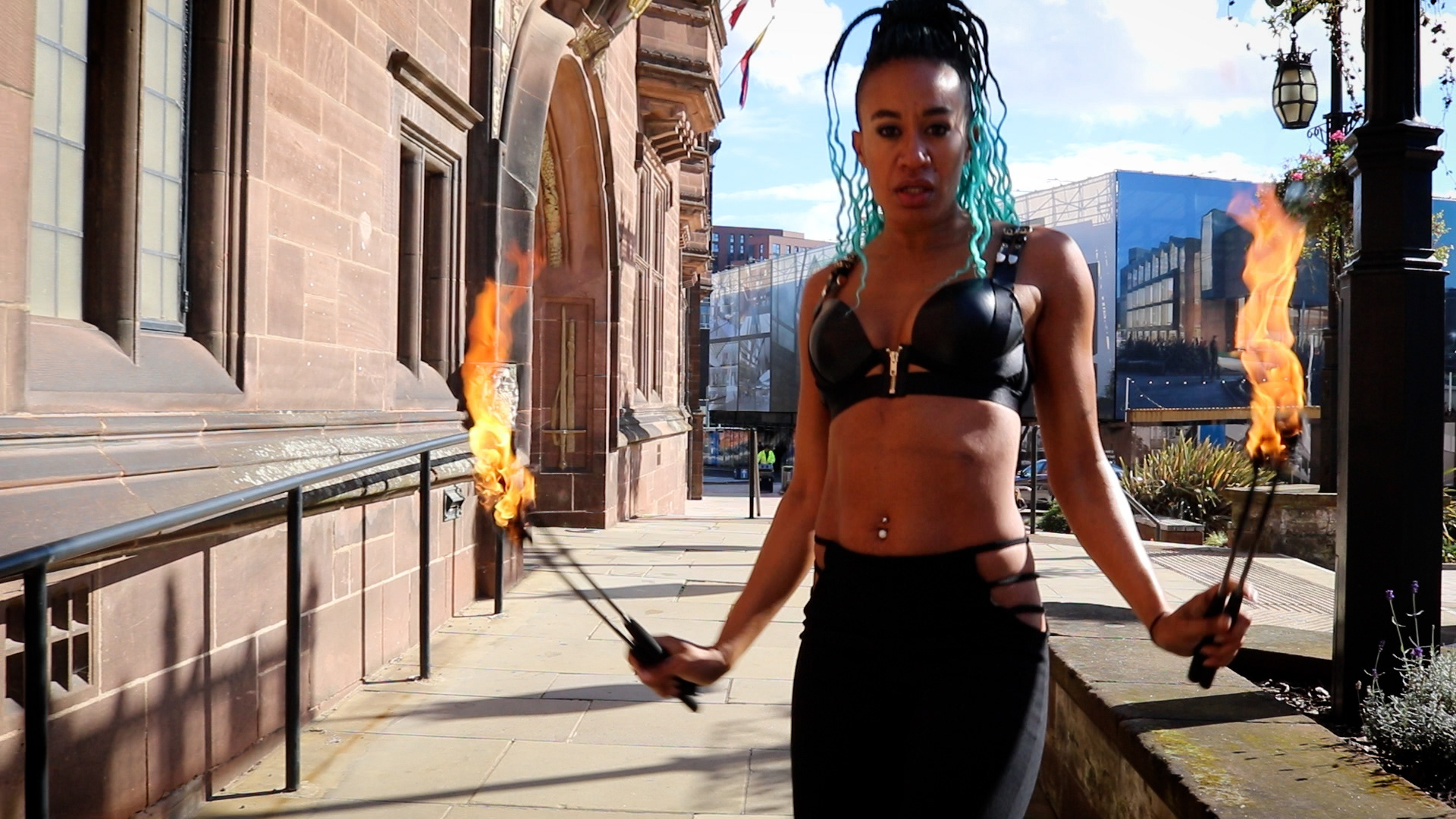
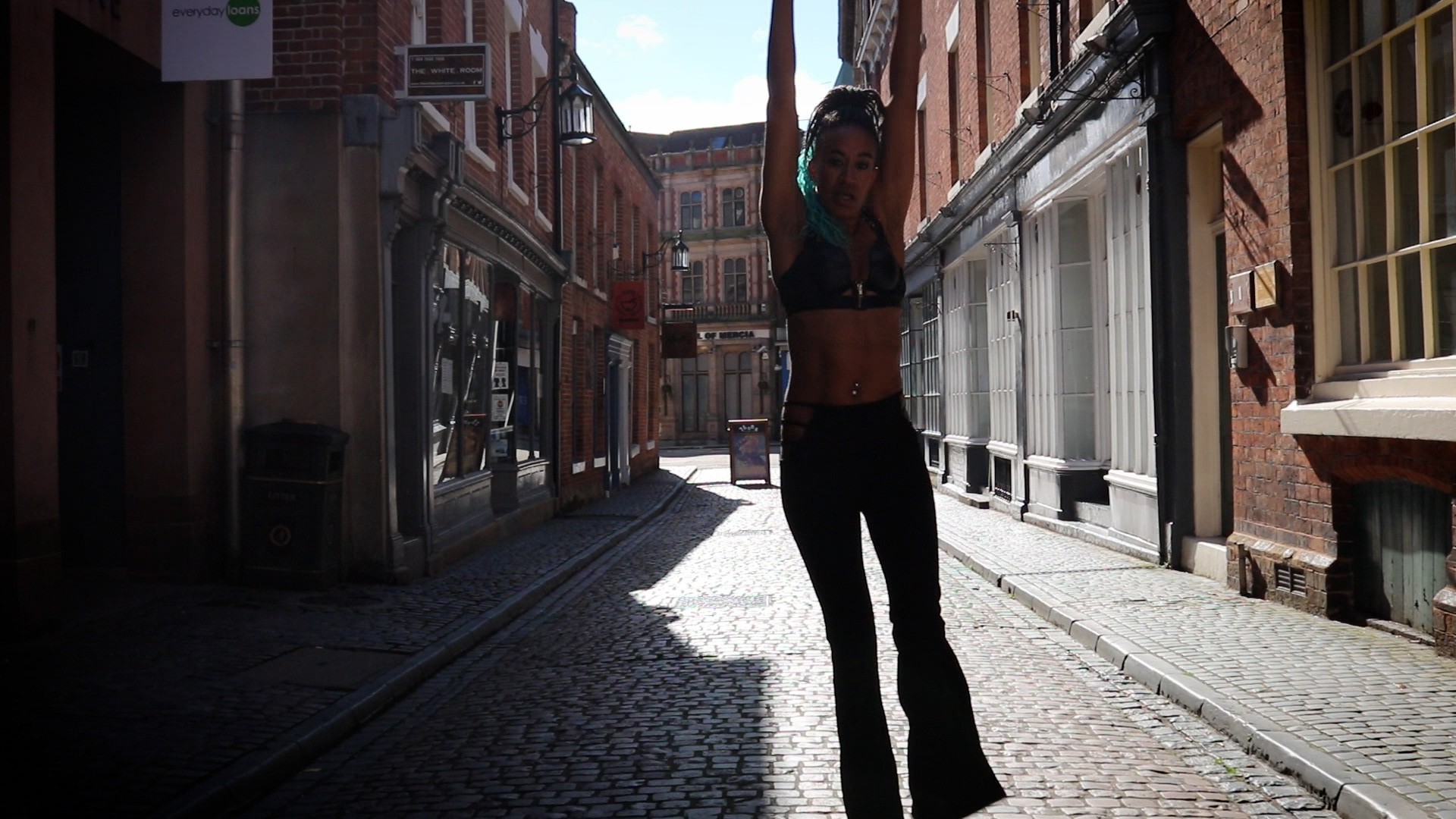
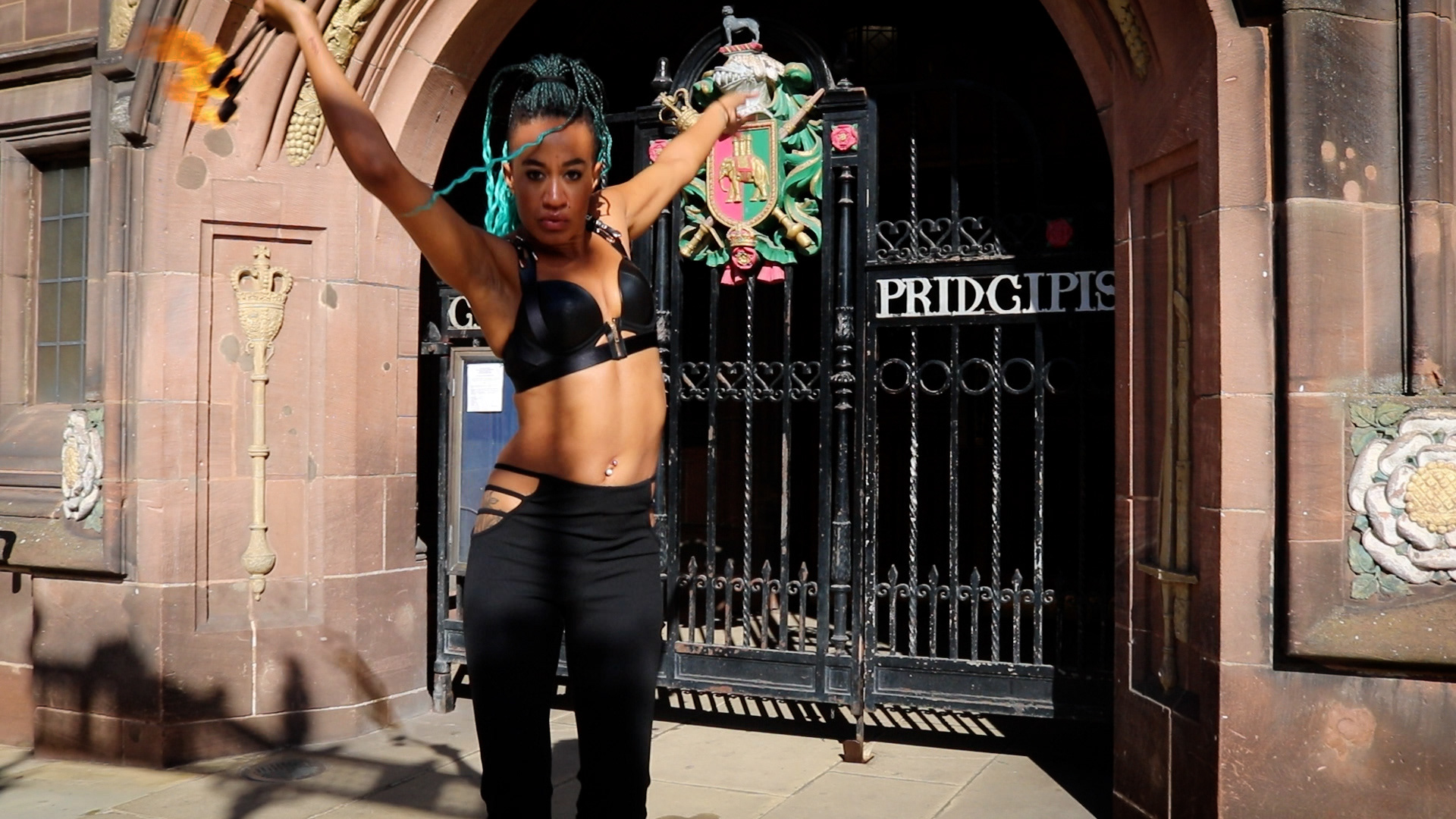
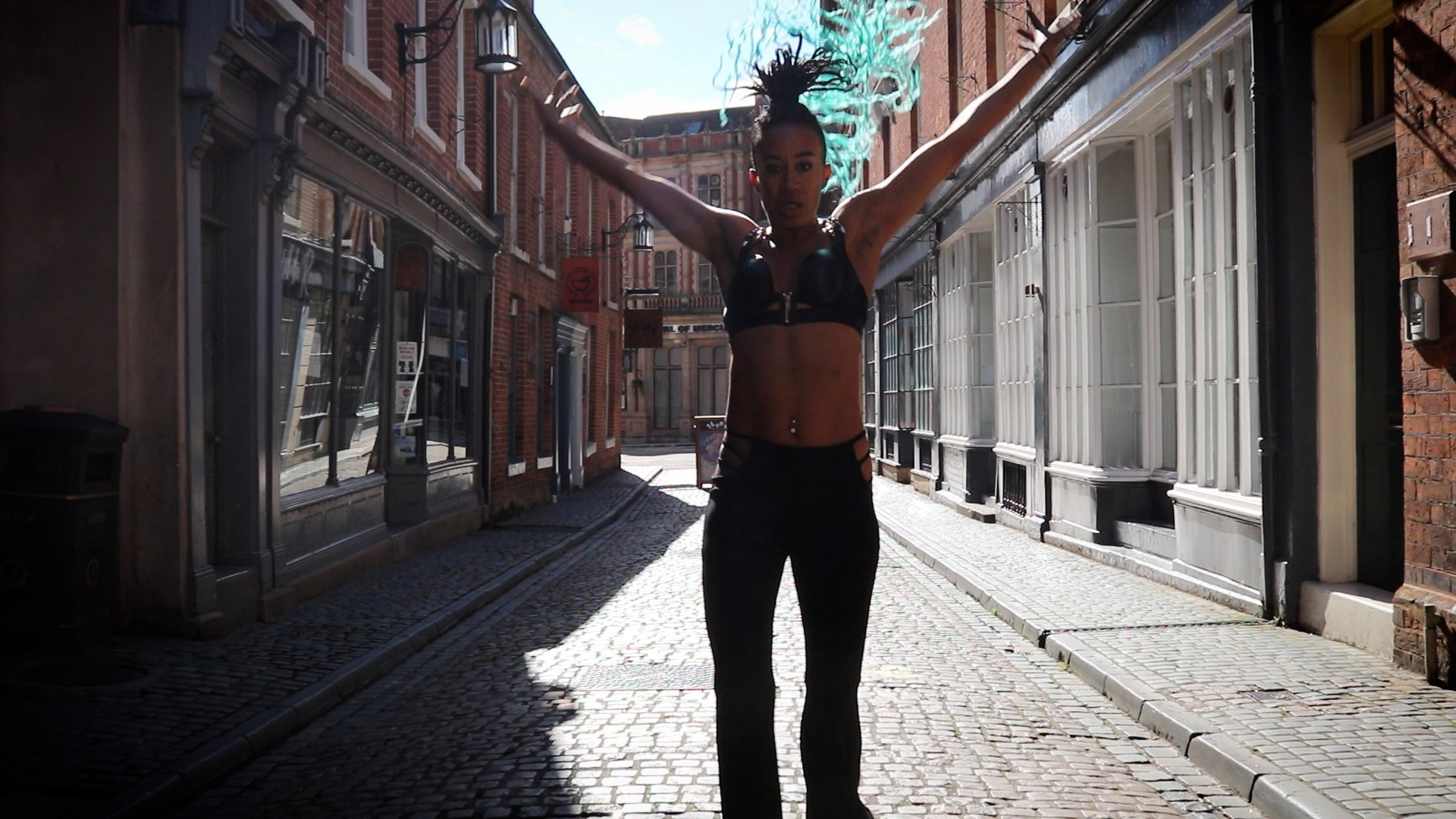
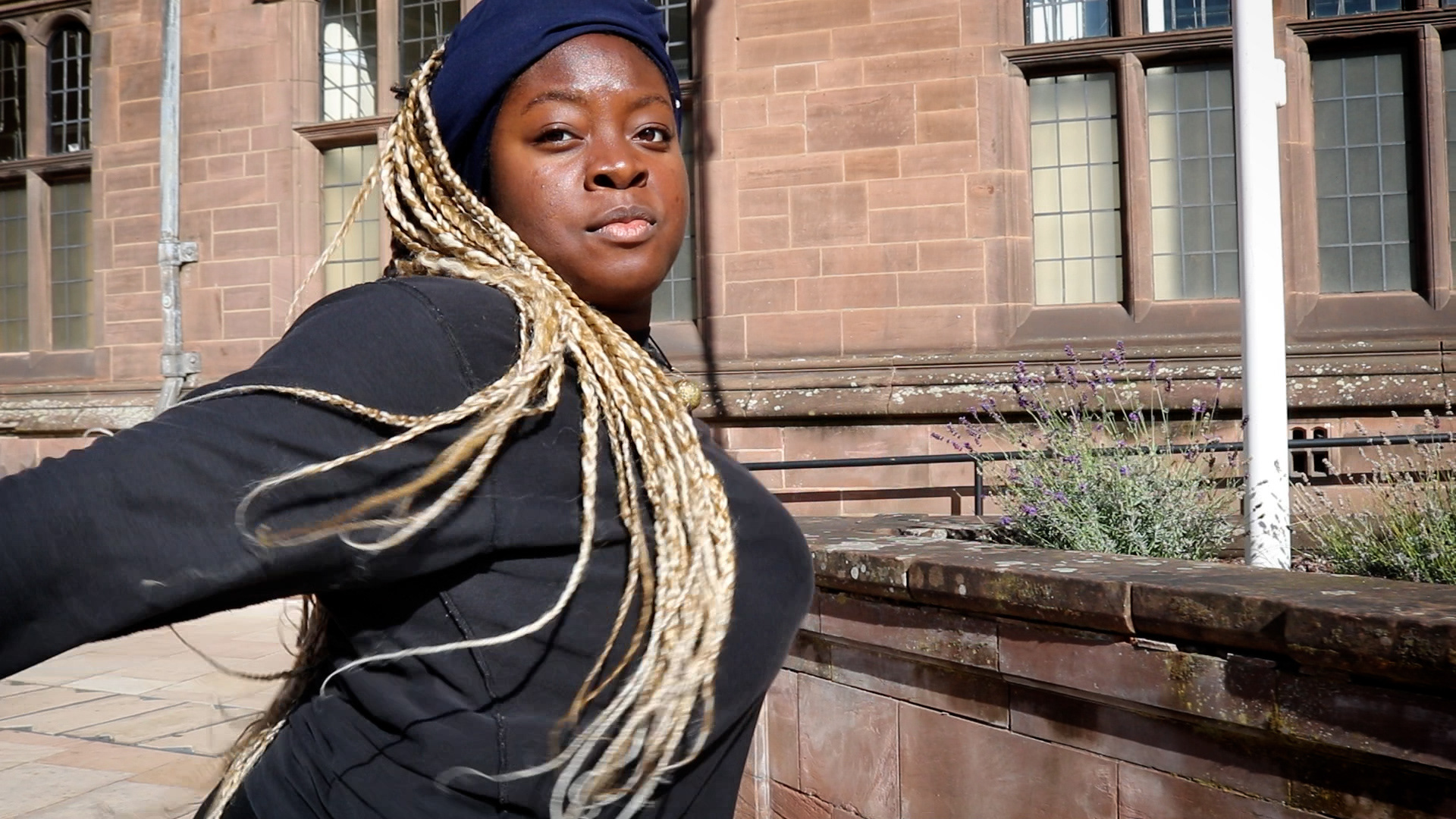
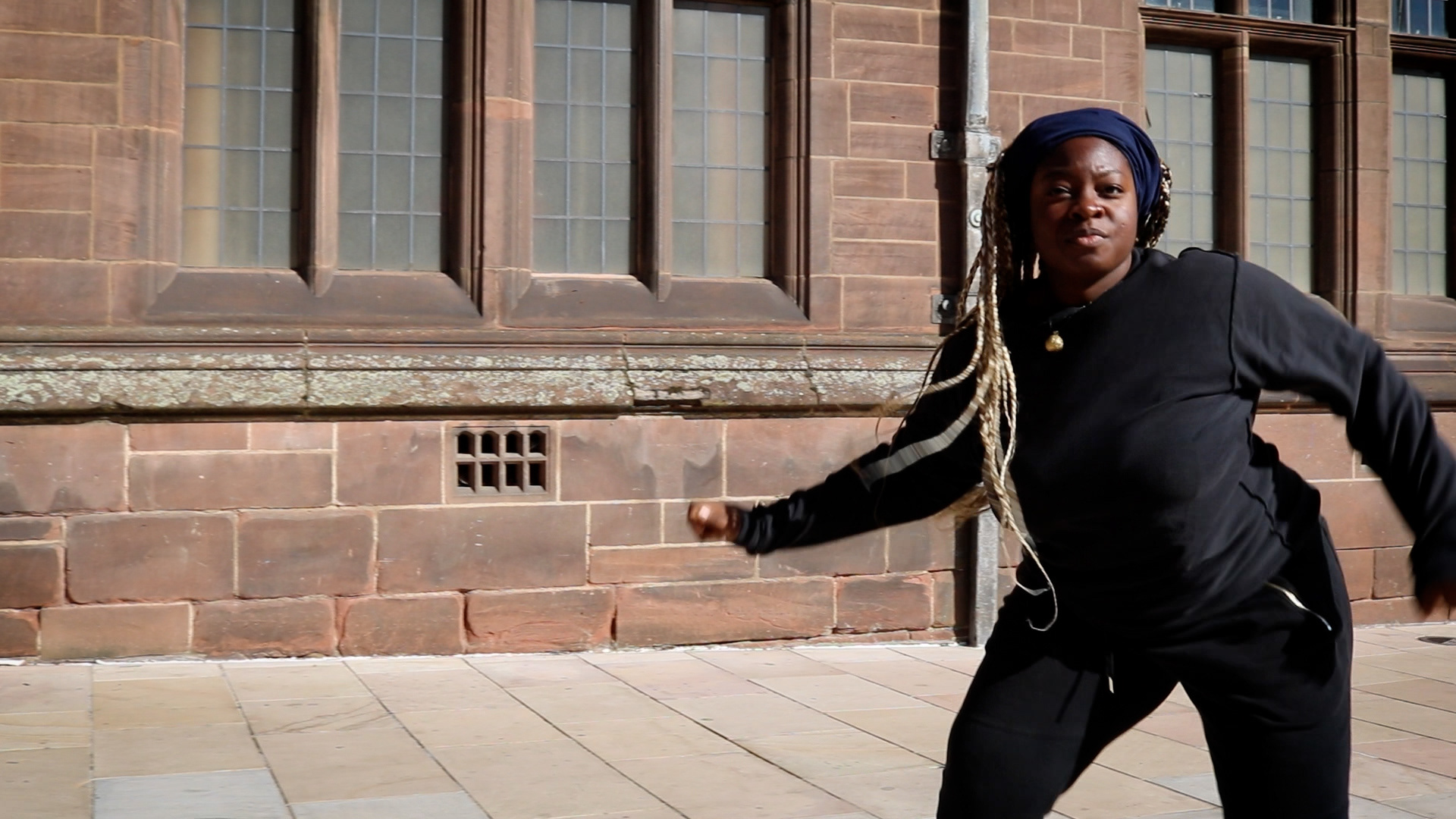
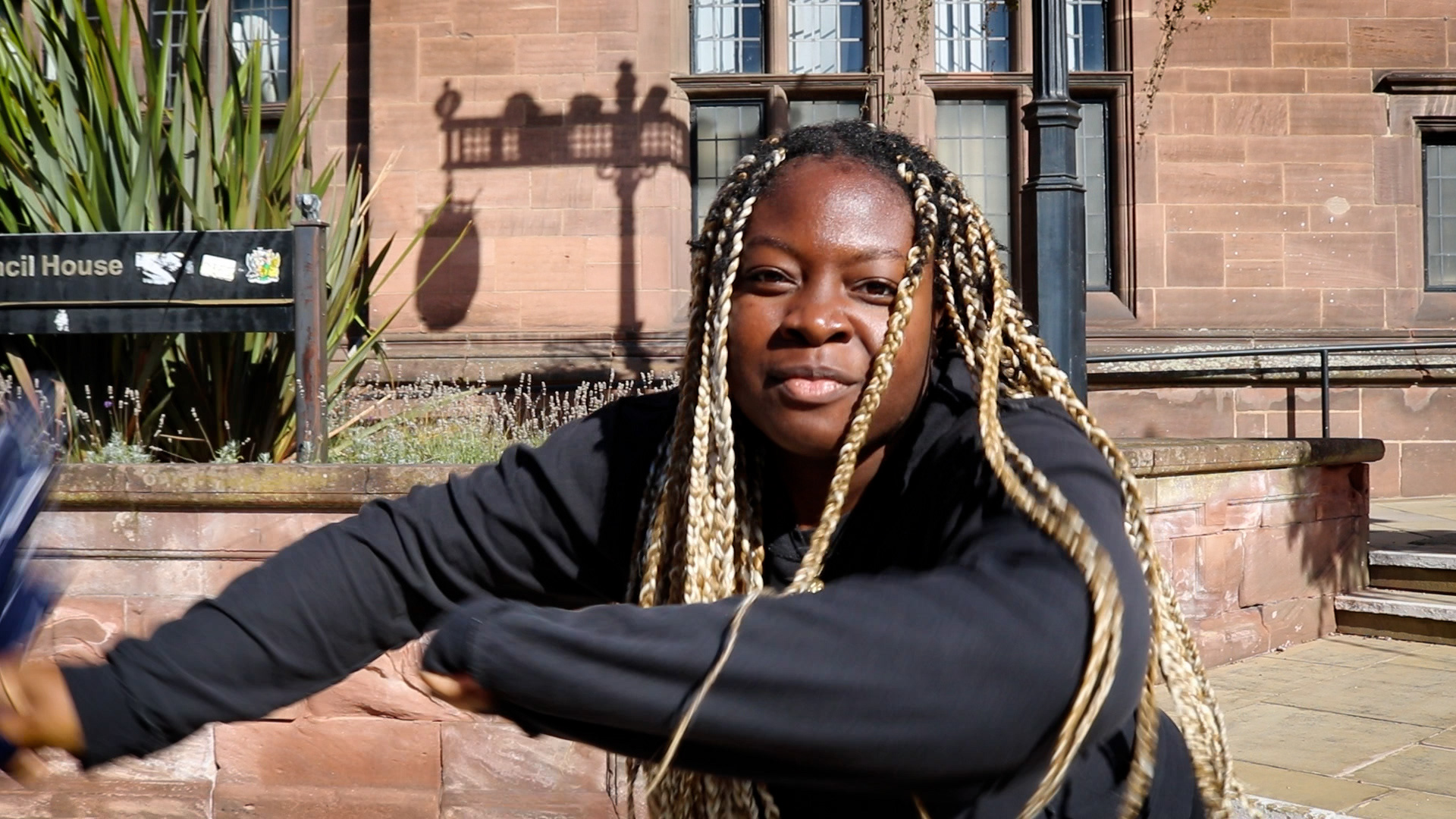
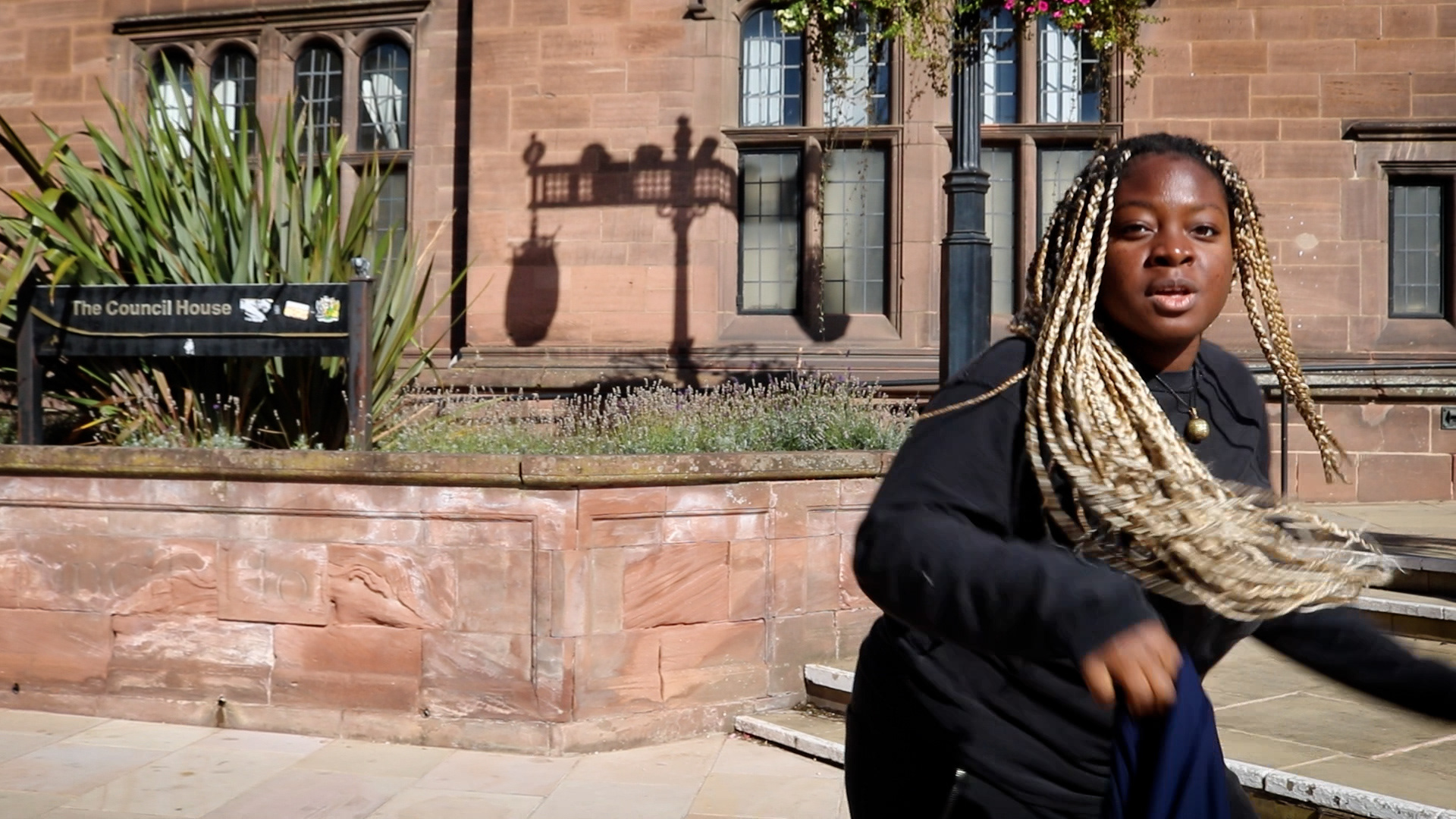
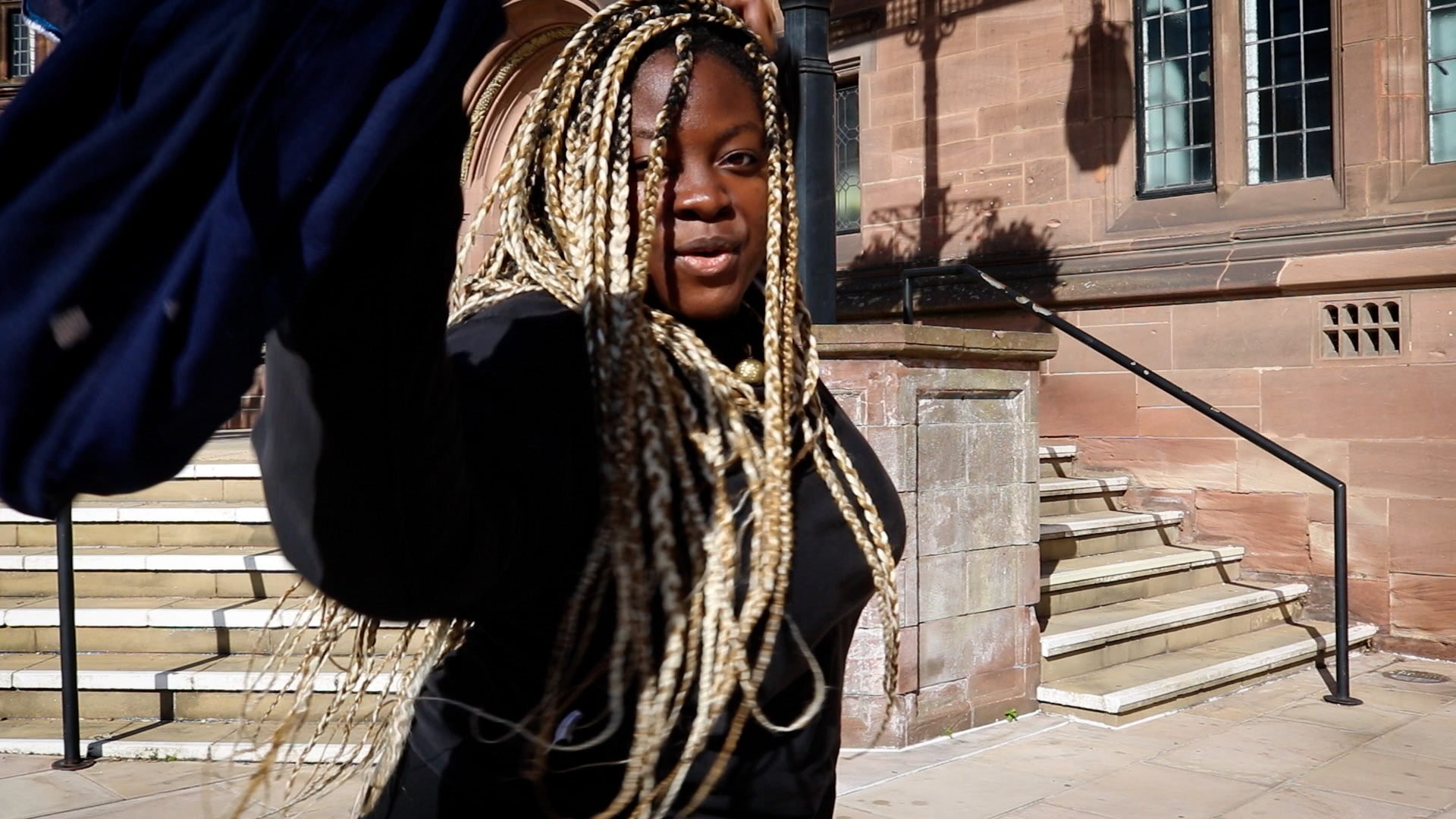
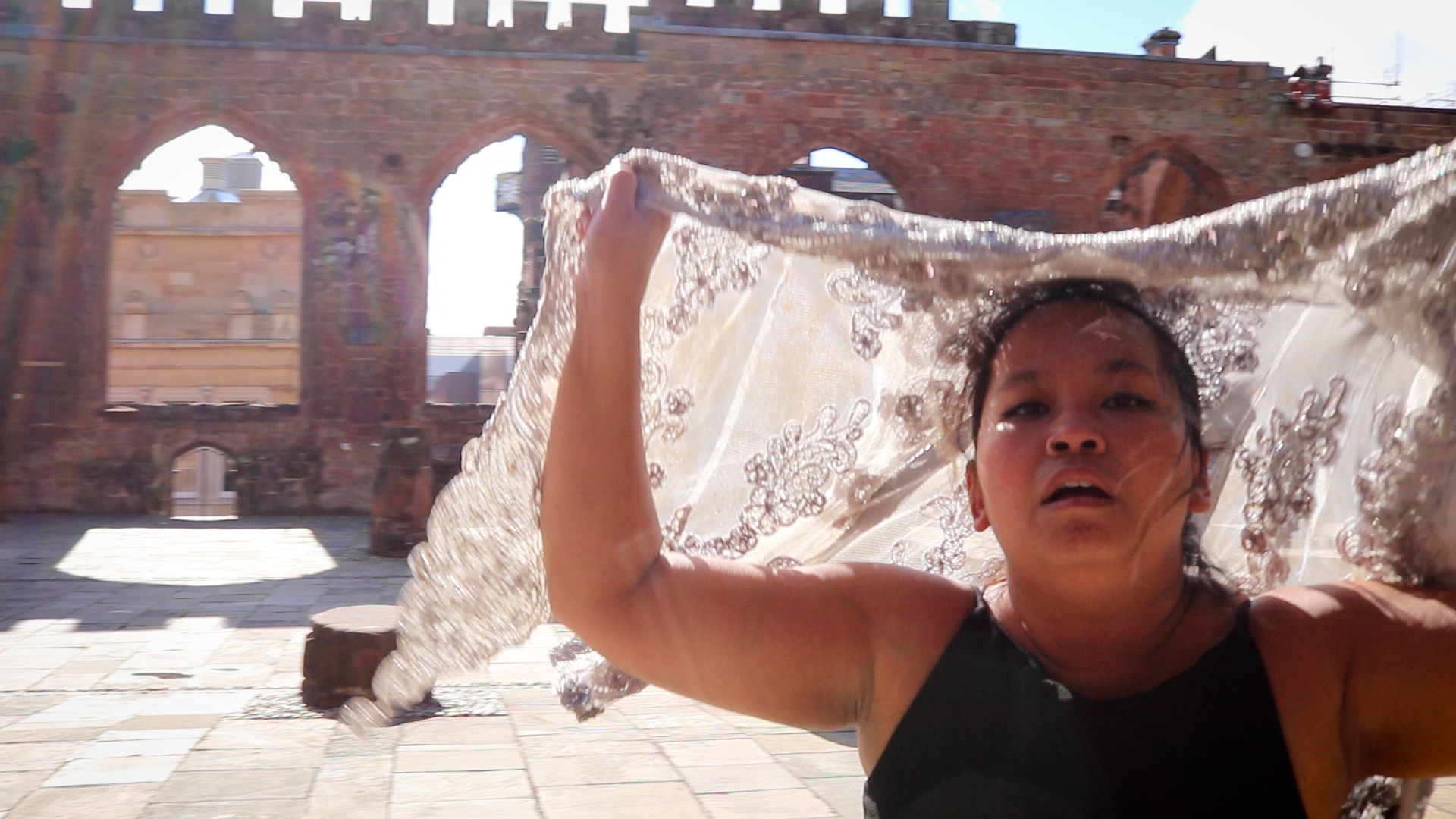
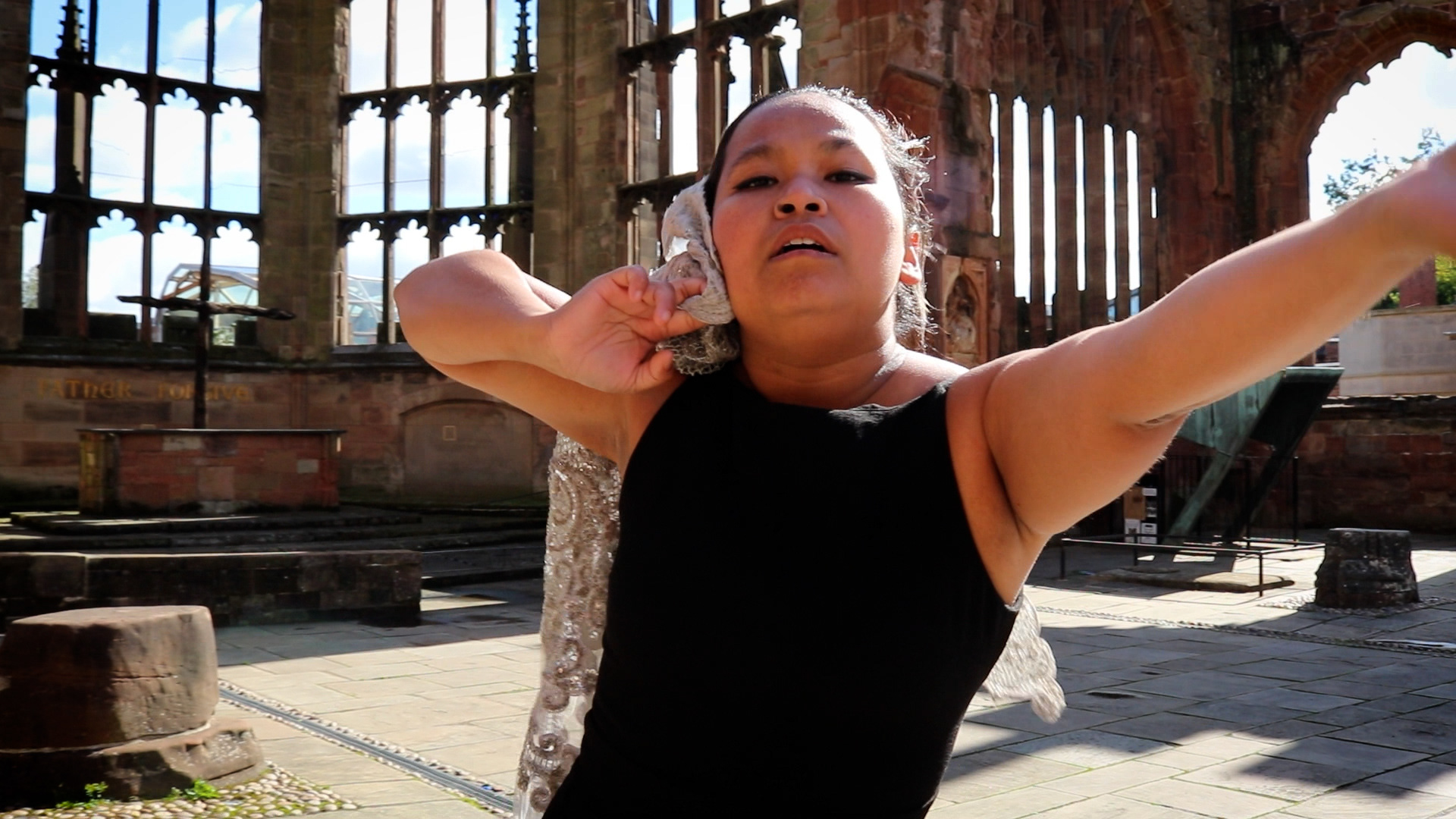
Poem: Imagine Equality , Create Change by Sherrie Edgar
Women fight for people
My sight sees the need of active change
Women conceive politics as order,
but this disorder does not broker my want for equality
Politics only reflects those in power
The lack of black female representation, creates the lack of representation
Women's motivation, is to defend Women to be heard
Brown Women cause change
I am prepared
Validate my politics
Women’s race identity cannot be lost
We are equipped to serve, create, be powerful and integral
Women exceed men to educate, engineer, laws of society and human rights
Offering safety and nourishment, we economise and strategize
Women with darker skin are not oppositions, subjected archetypes, vagility and othered
You have more to lose when politics is compromised
Protect Women's rights, history shows us the effect of errors
Fill the gap, sanitary tax, motherhood, pay, health, home, working rights,
ownership, well-being, legal aid, business
Women vote, protest, talk, shout, sign, signal, vigil, write
We are a cannon for greater social mobility and greater care
Women of ethnic backgrounds understand our diverse rainbow
Humanity comes into everything and everyone
Racialised Women change the world, traditional to direct experience
Our staircase leads to gate kept doors
Manoeuvre information, that structure
I Woman leader, create change for many
Photography
Photographs of the Women Interviewed
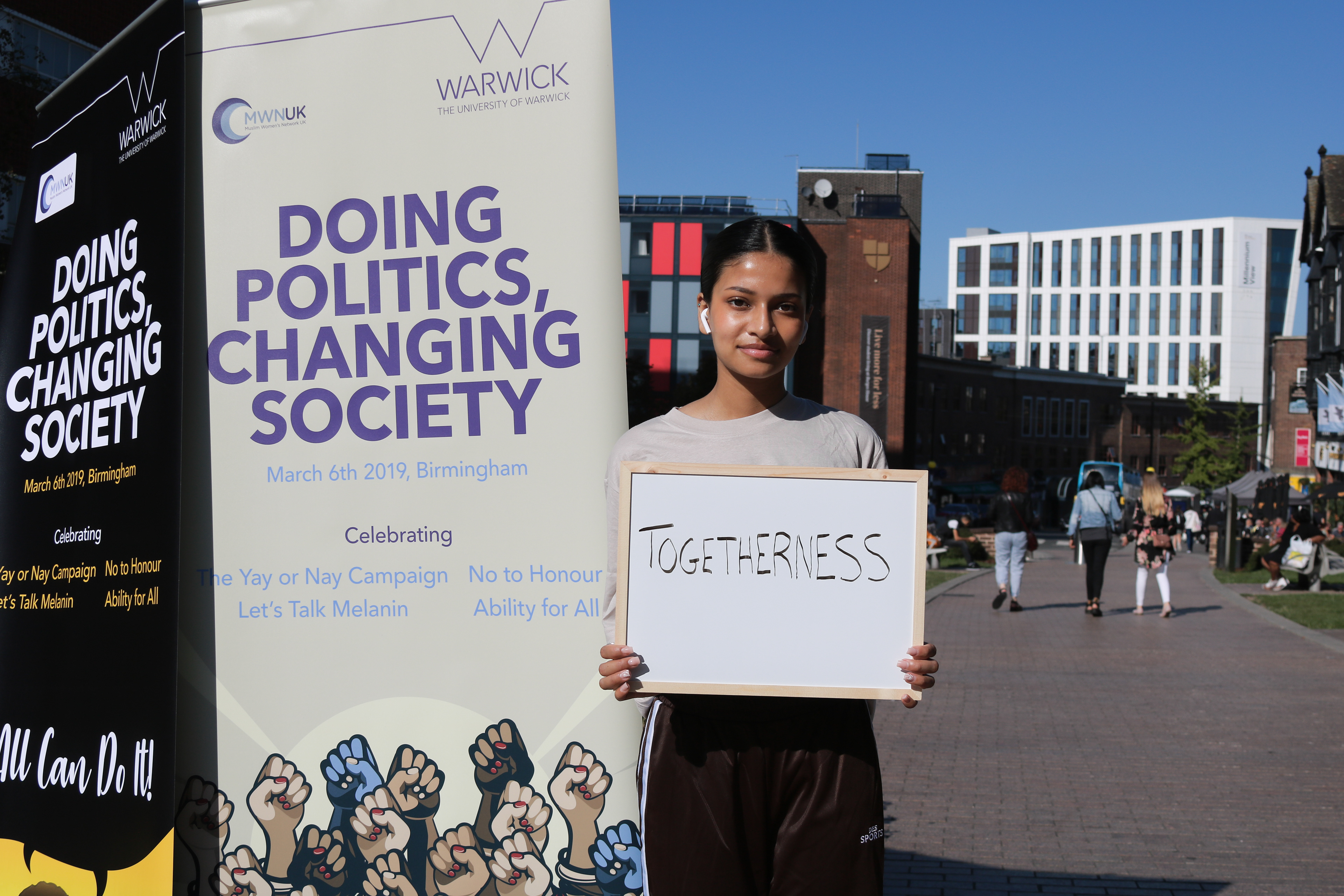
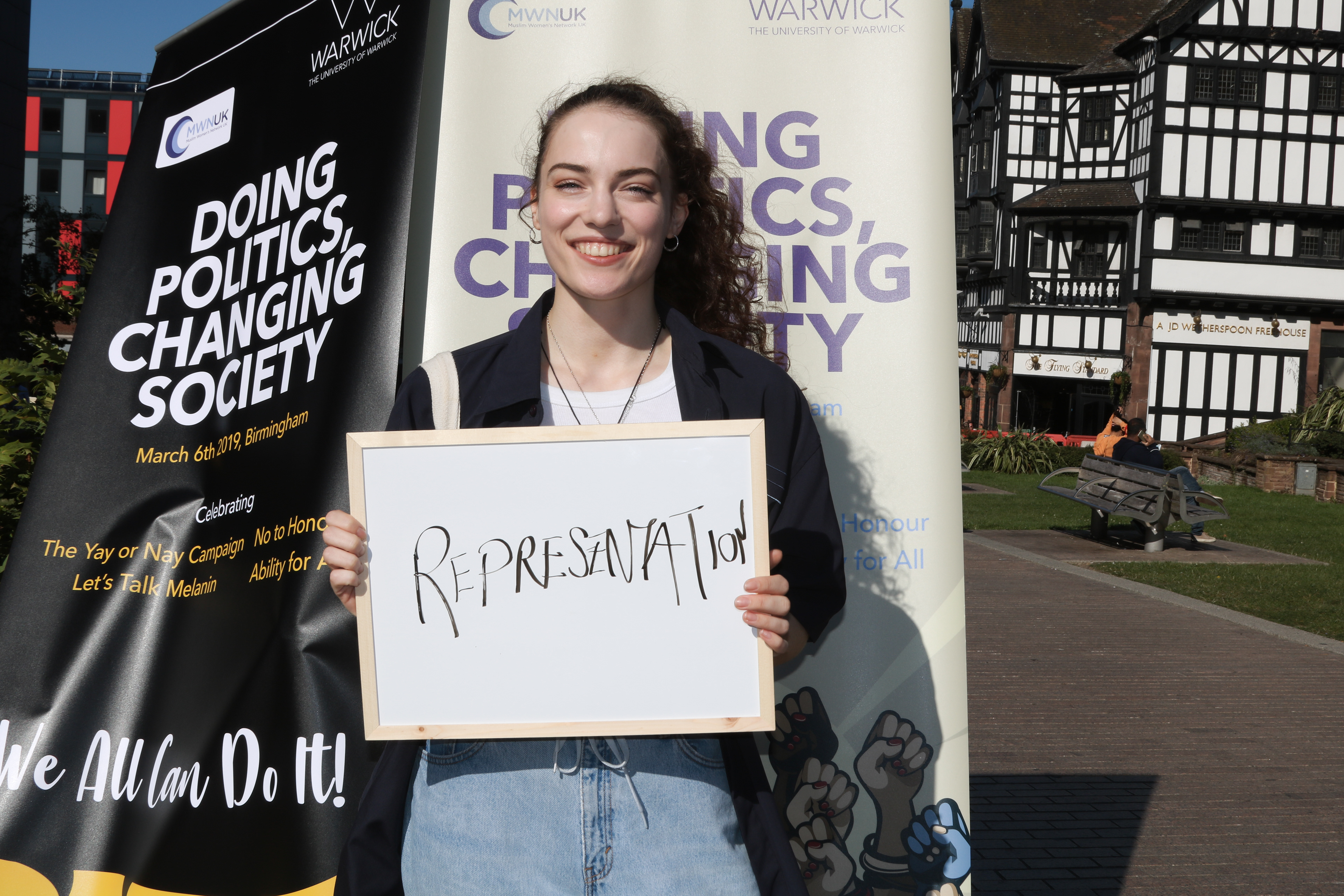
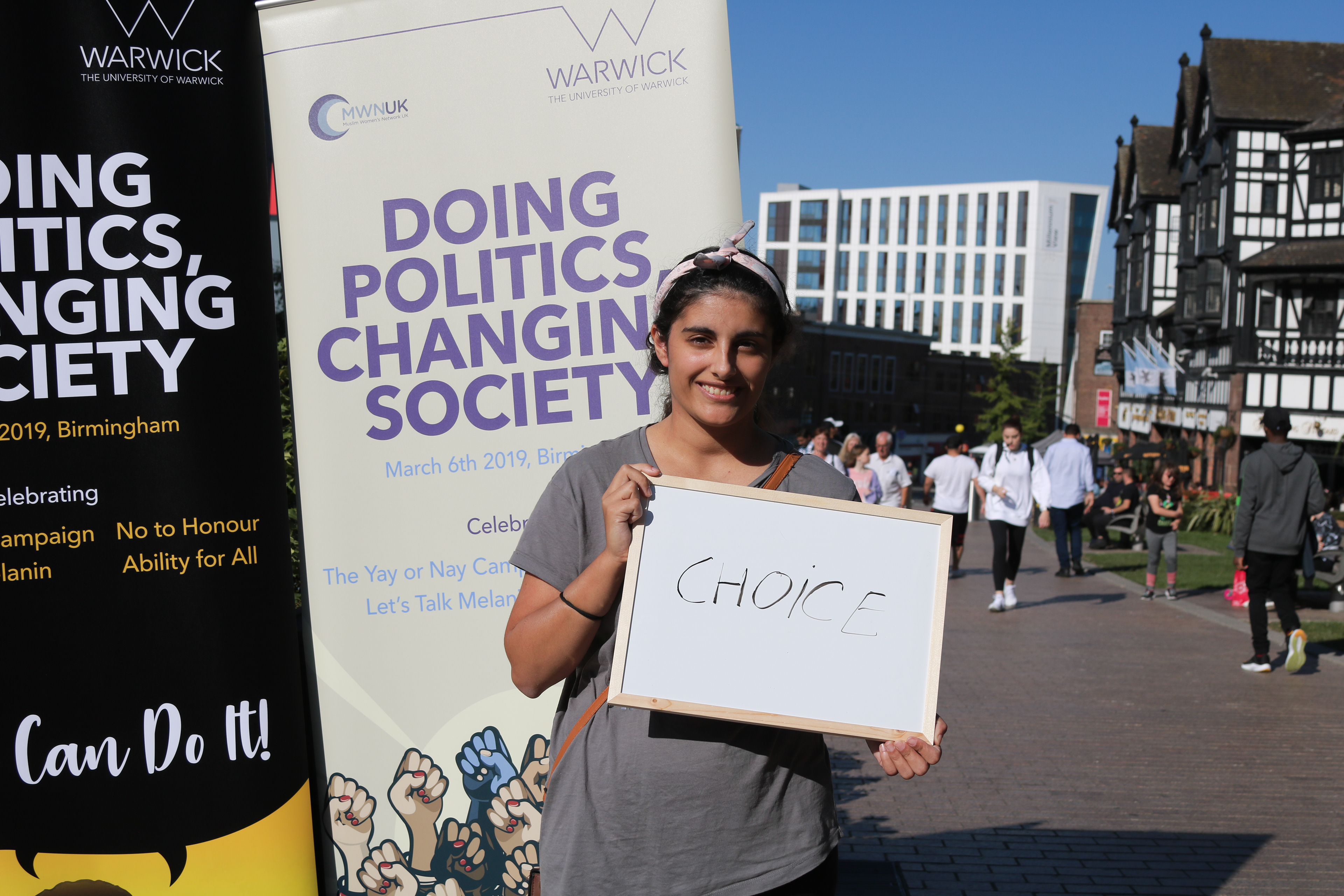
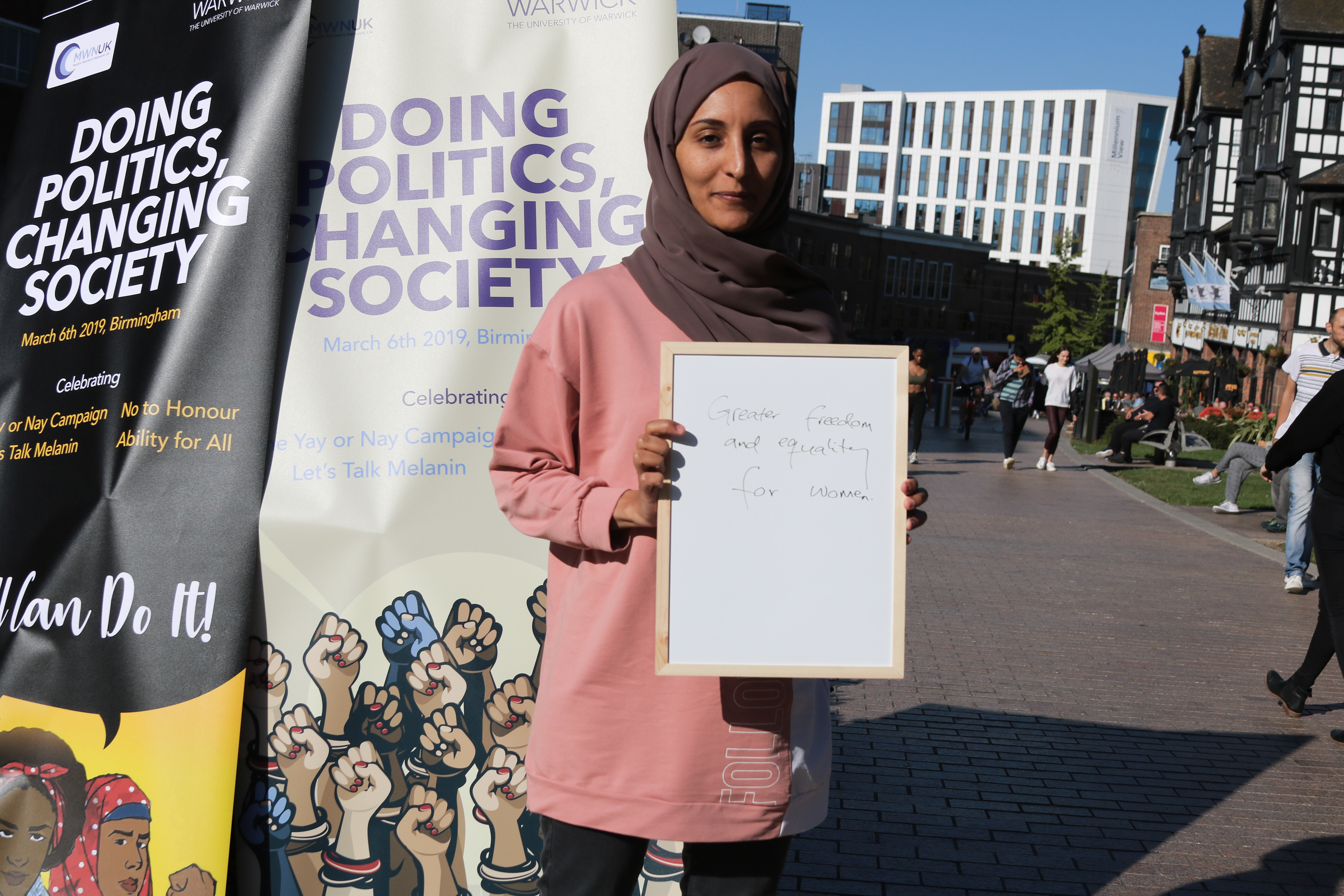
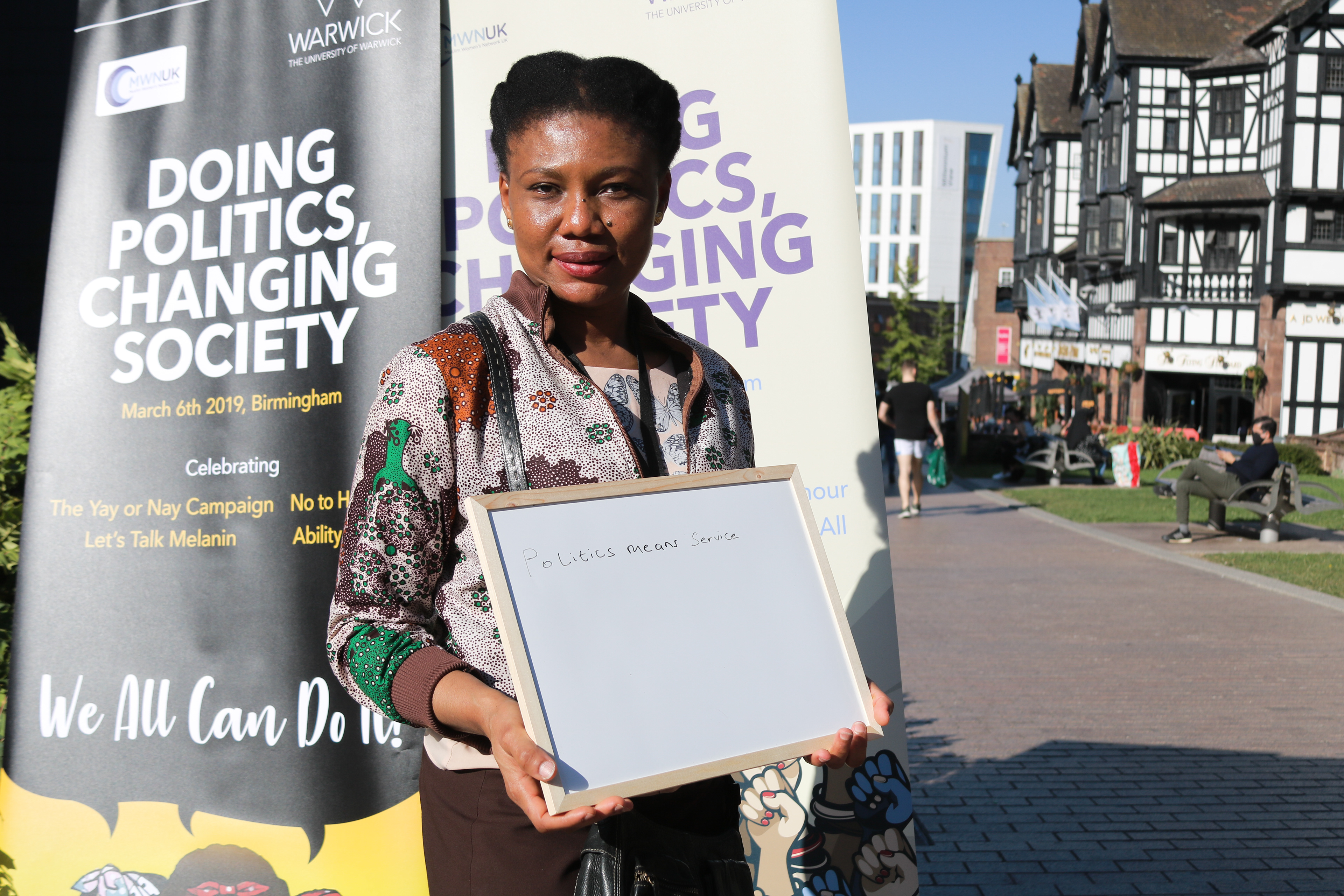
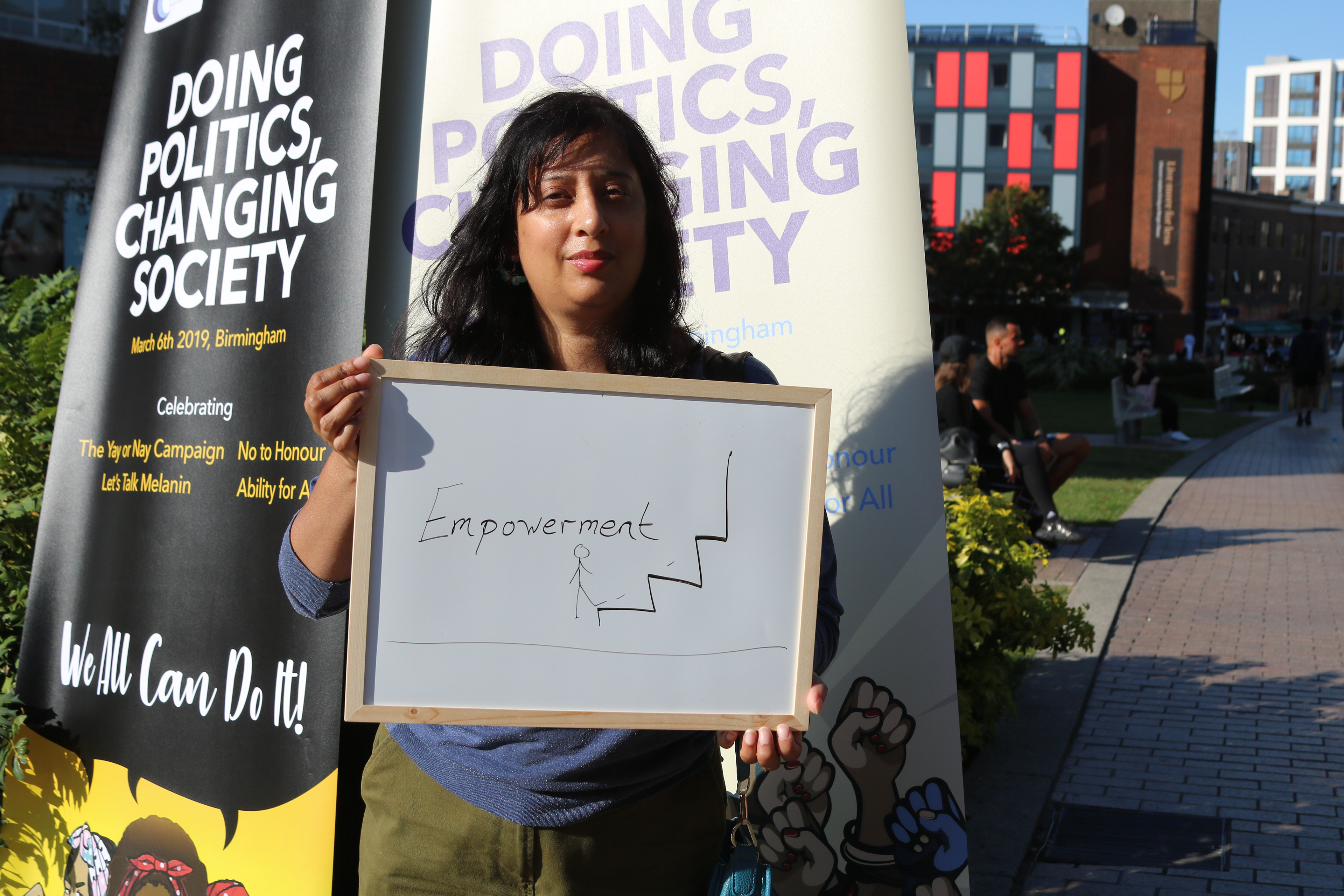
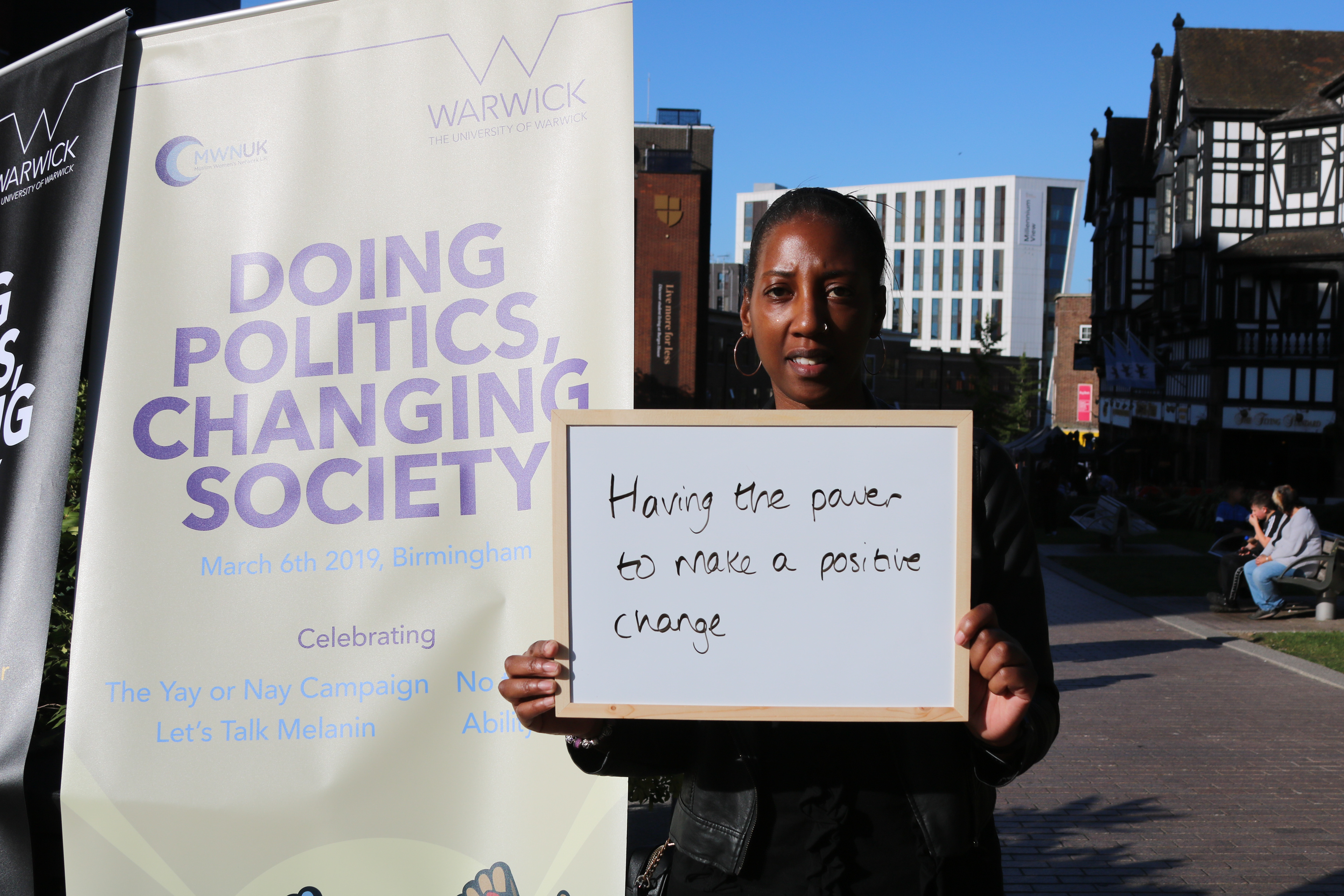
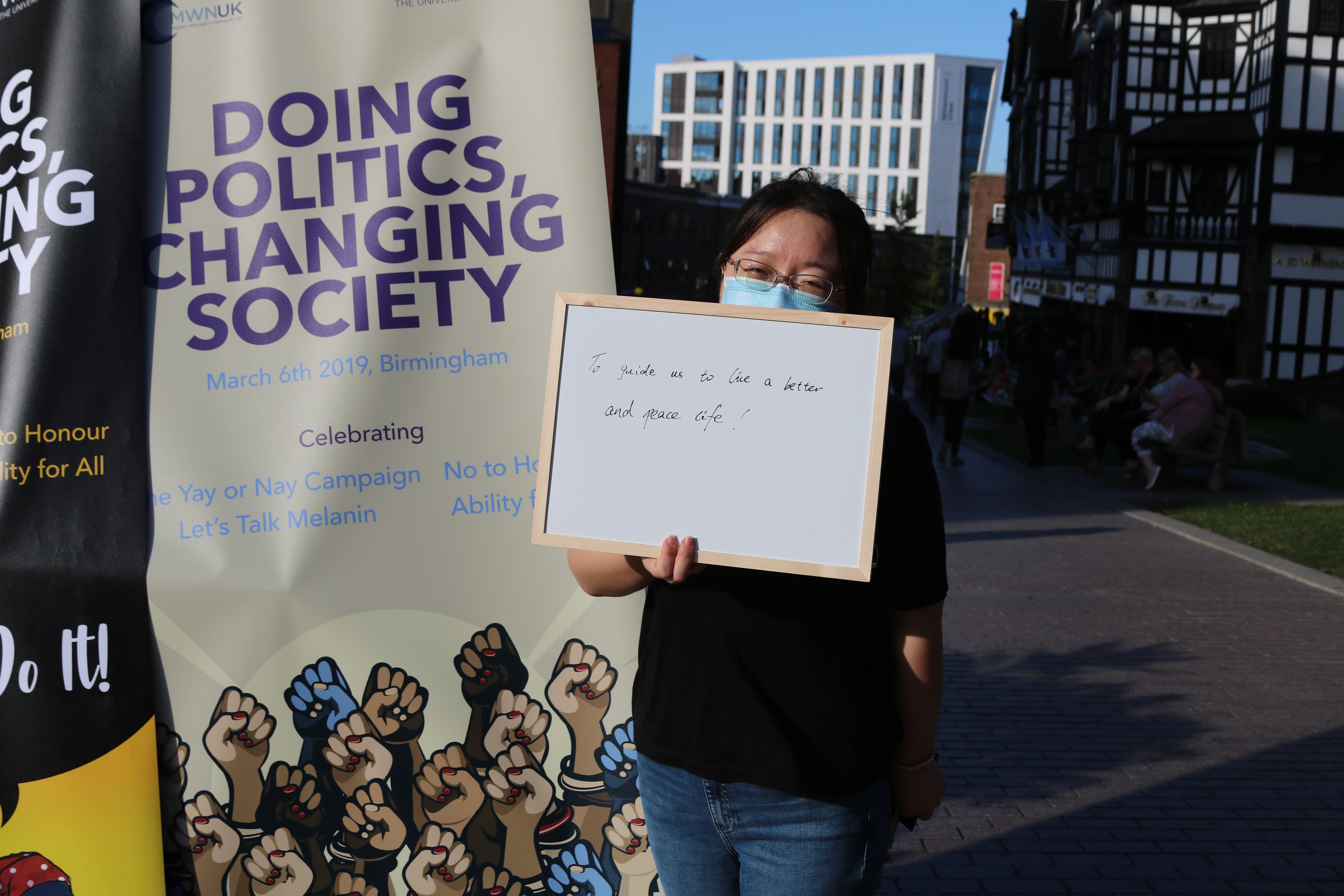
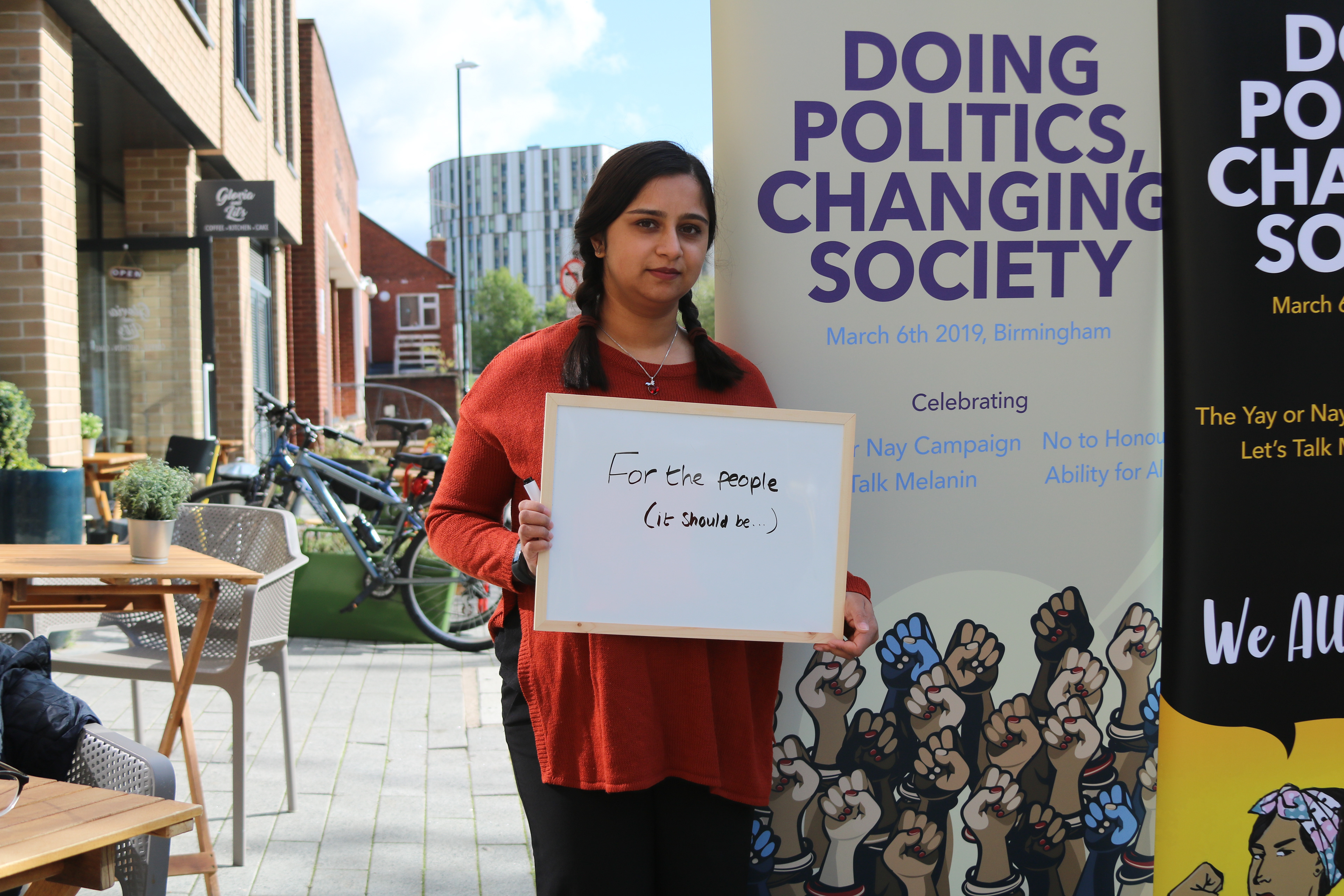
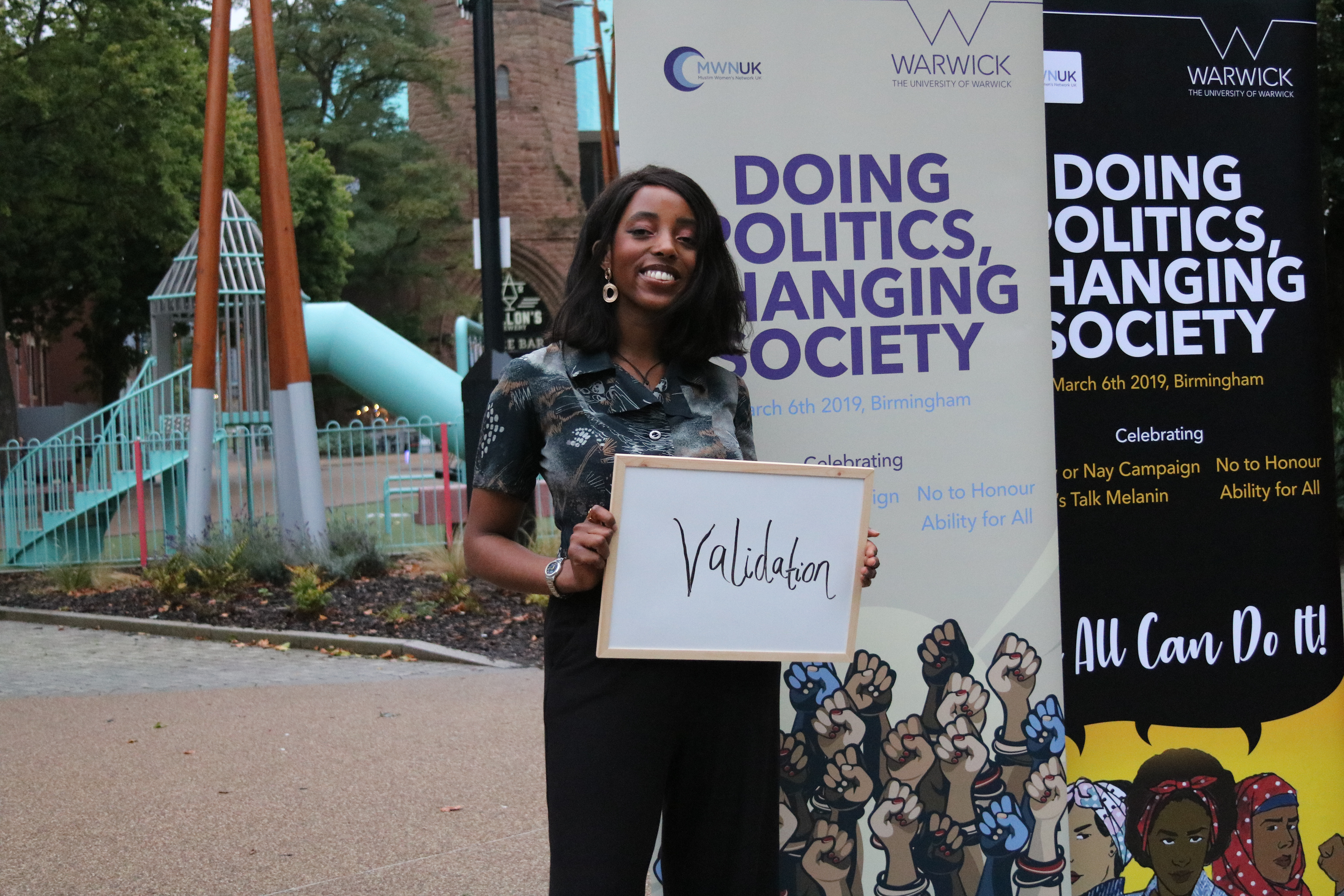
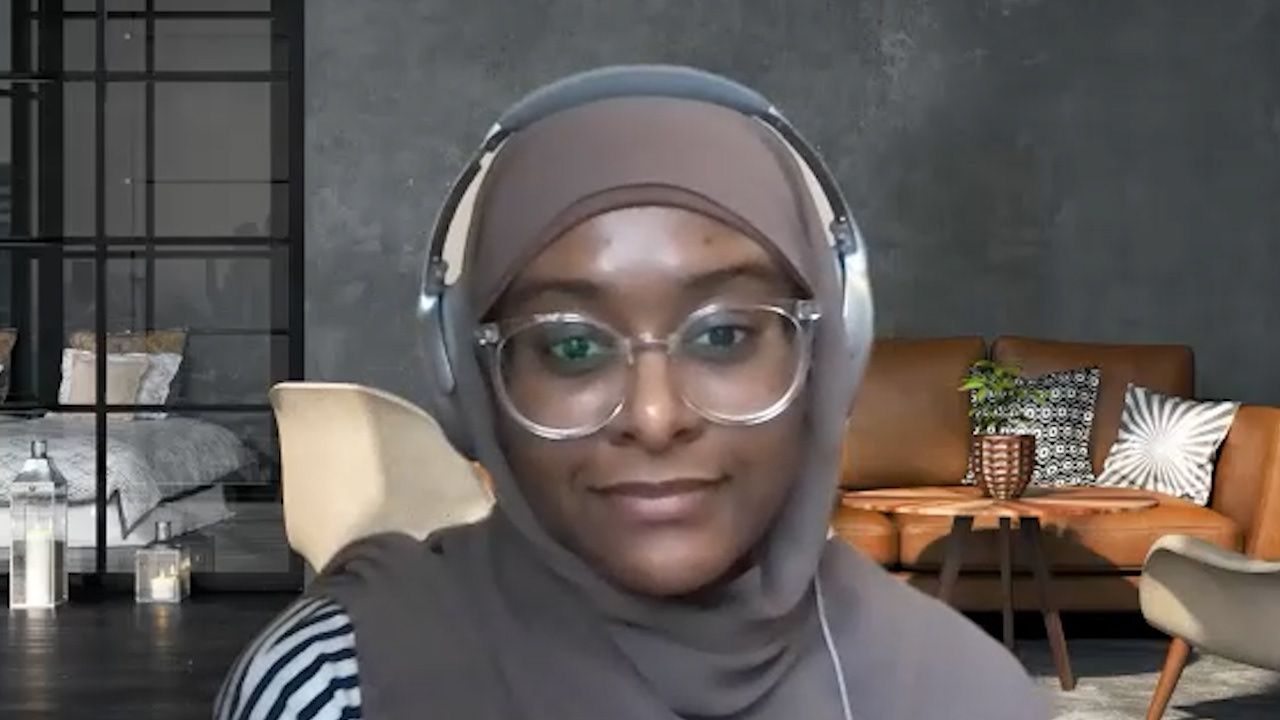
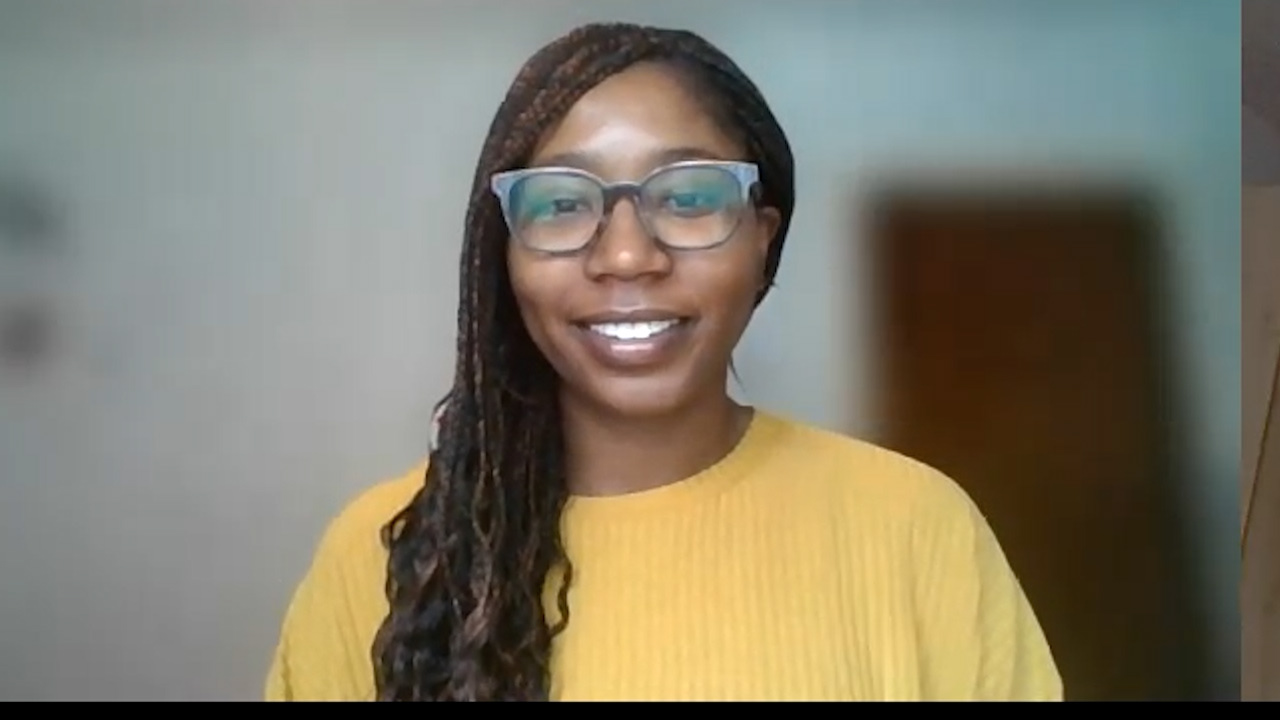
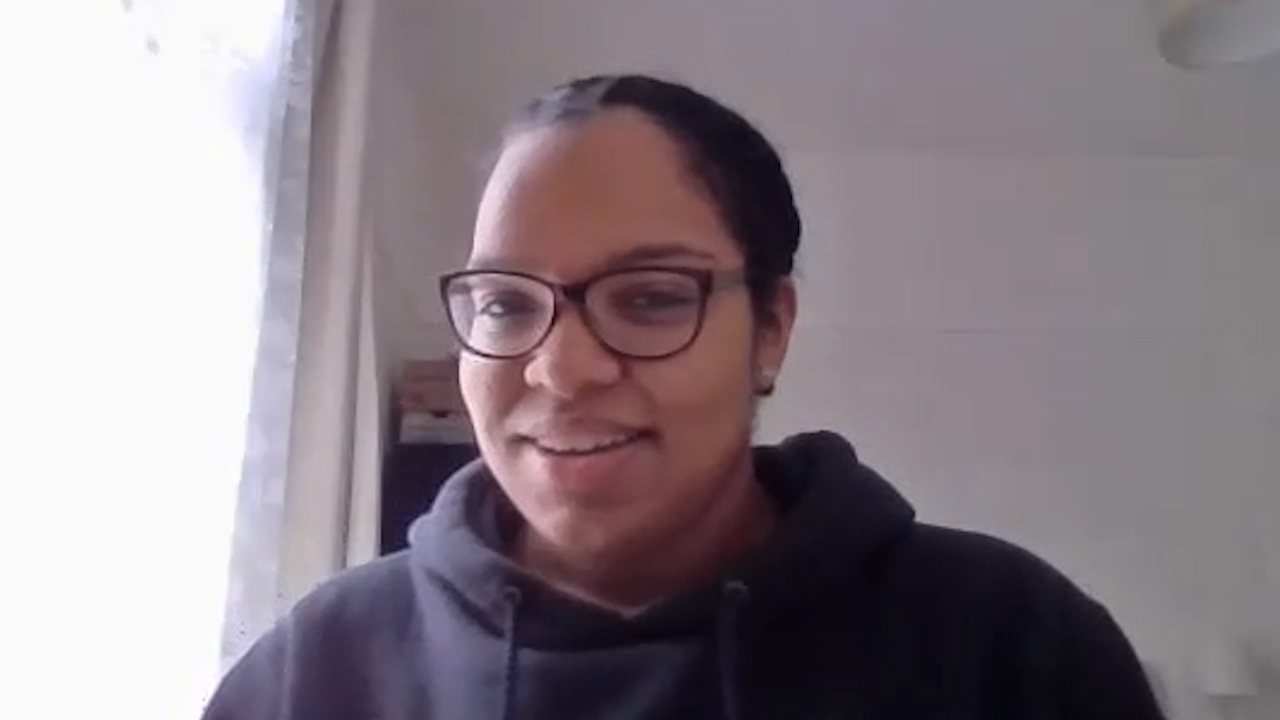
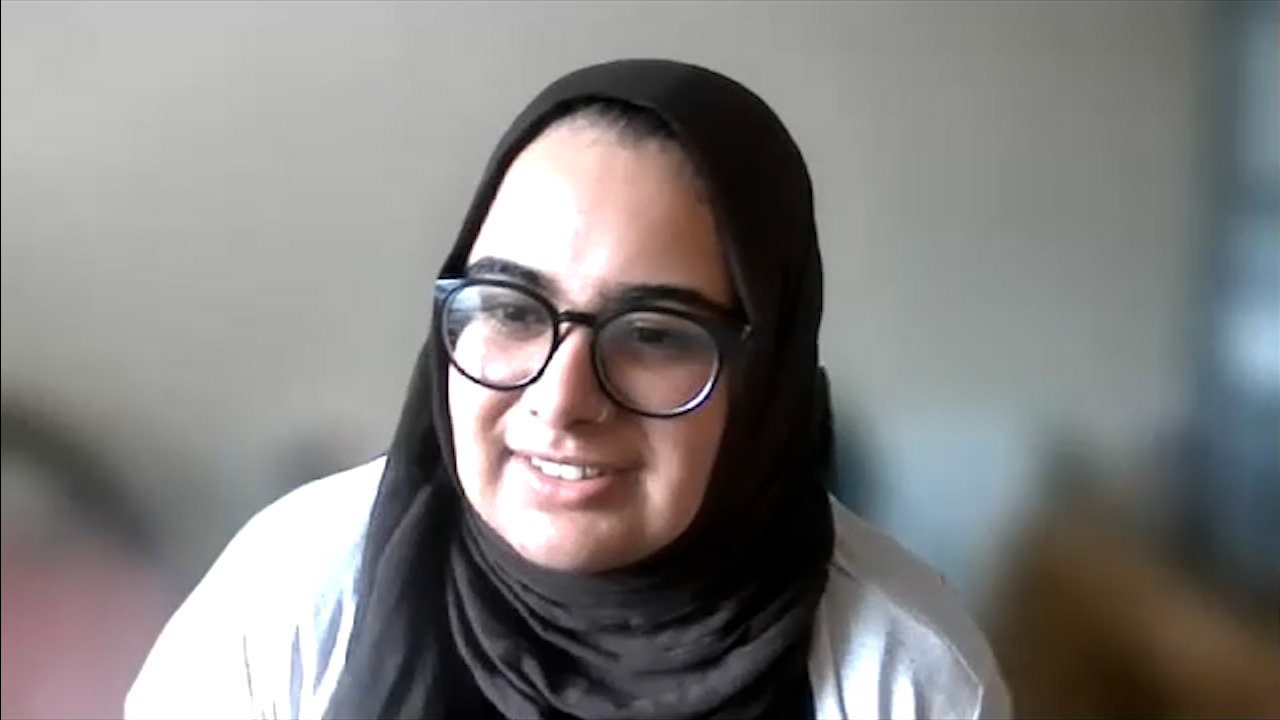
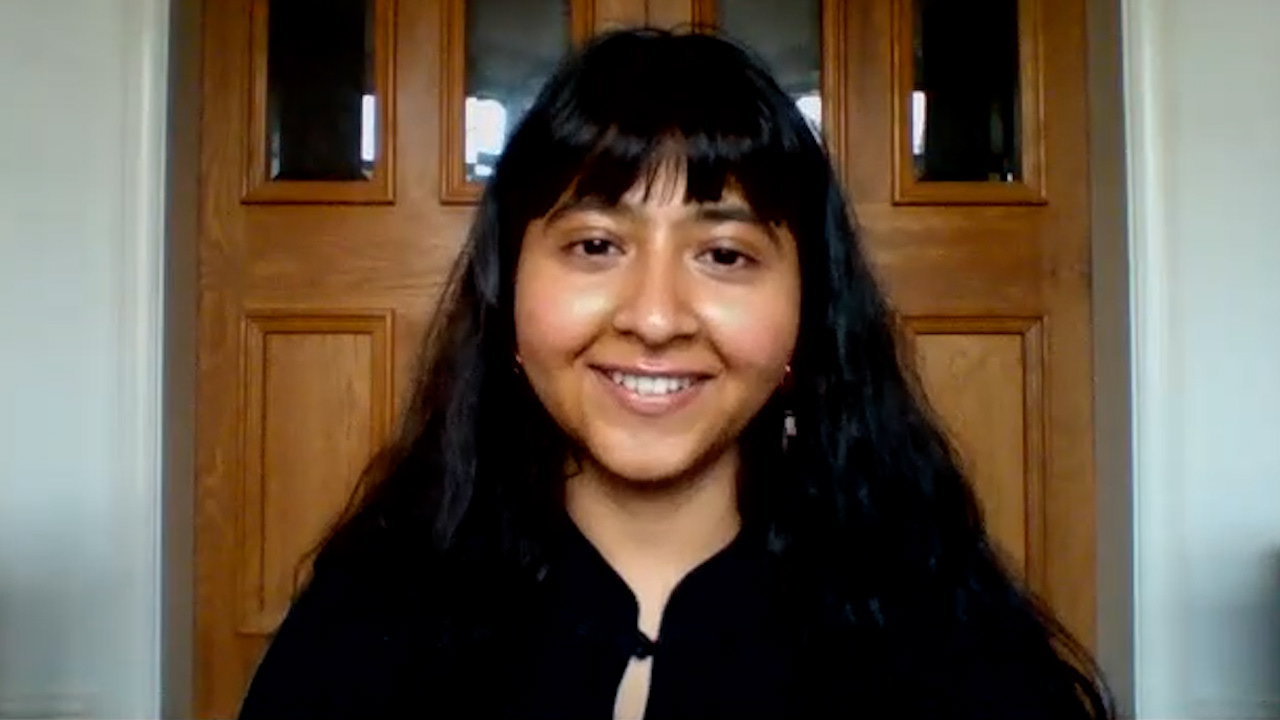
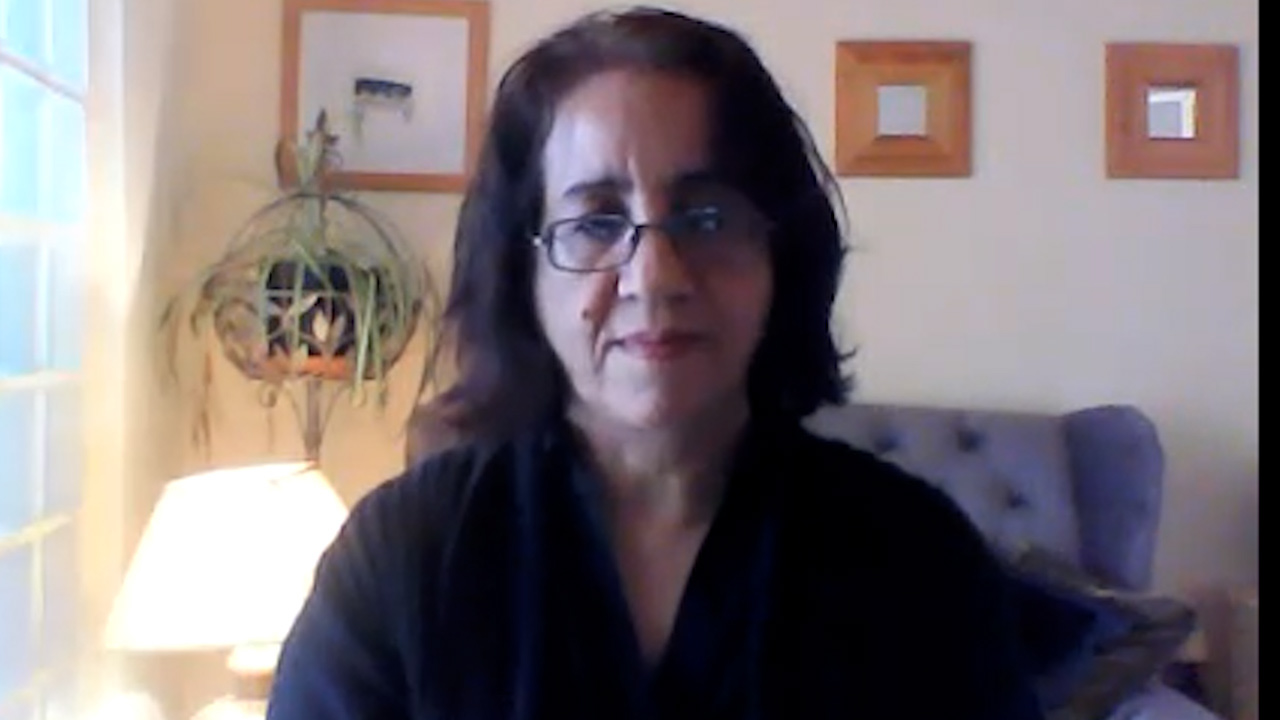
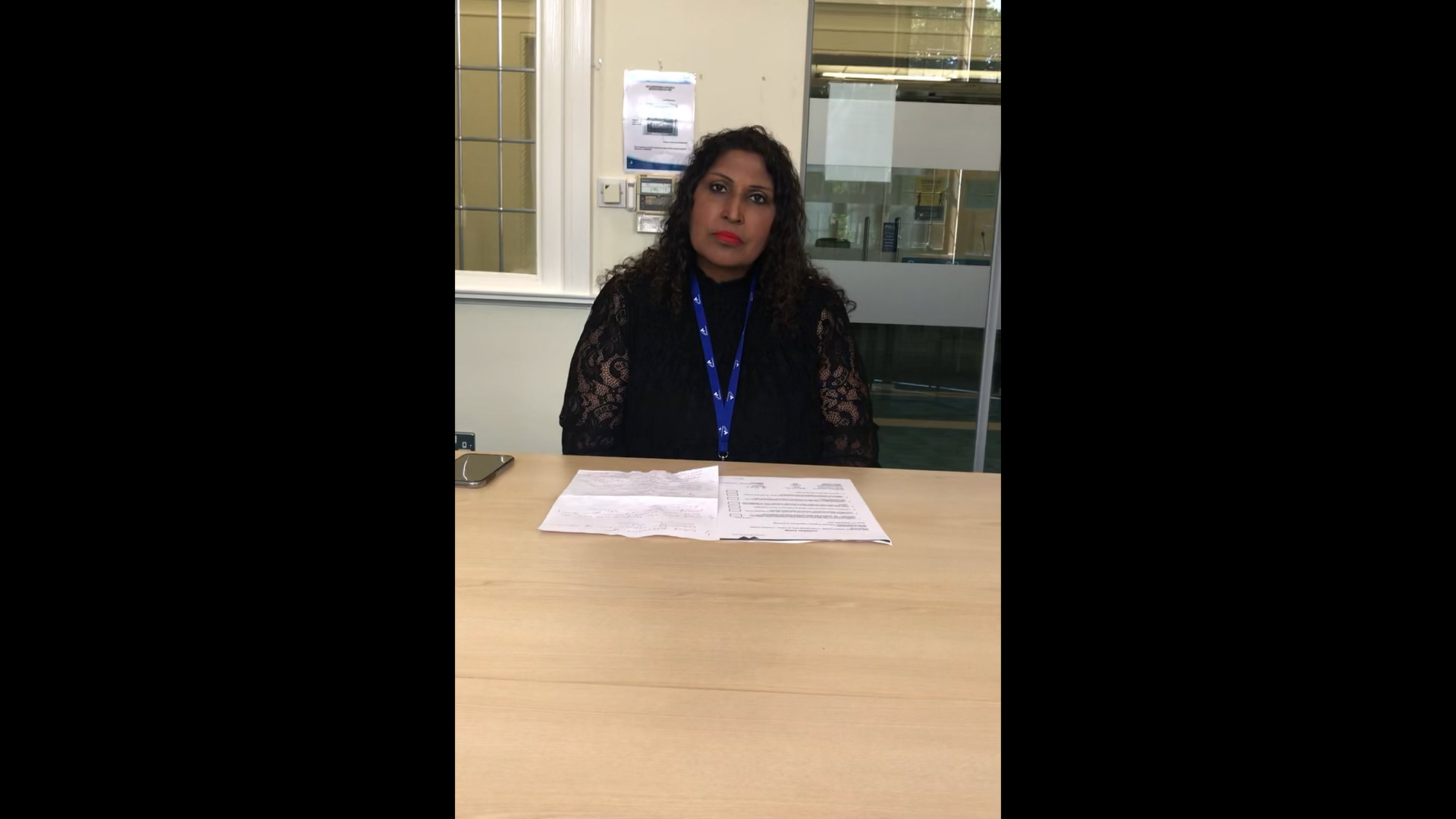
Voices
Thank you for sharing your experiences
Rahmah Alghail, Halima Bahar, Rizwana Bi, Rianna Carter, Laura Duran Fervenza, Fatma Elasouad, Kauser Husain, Liv Jackson, Marshea Makosa, Felisha McBean, Onyinye Nwabuzor, Tarla Patel, Rumaisa Rehman, Kanisha Warrican, Xiaw Yu
and for providing insights into your amazing political journeys
Cllr Dr Randhir Auluck, Cllr Asha Masih